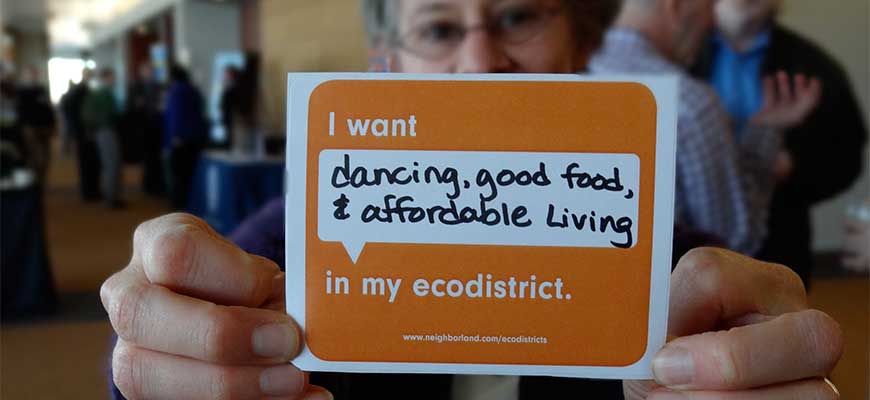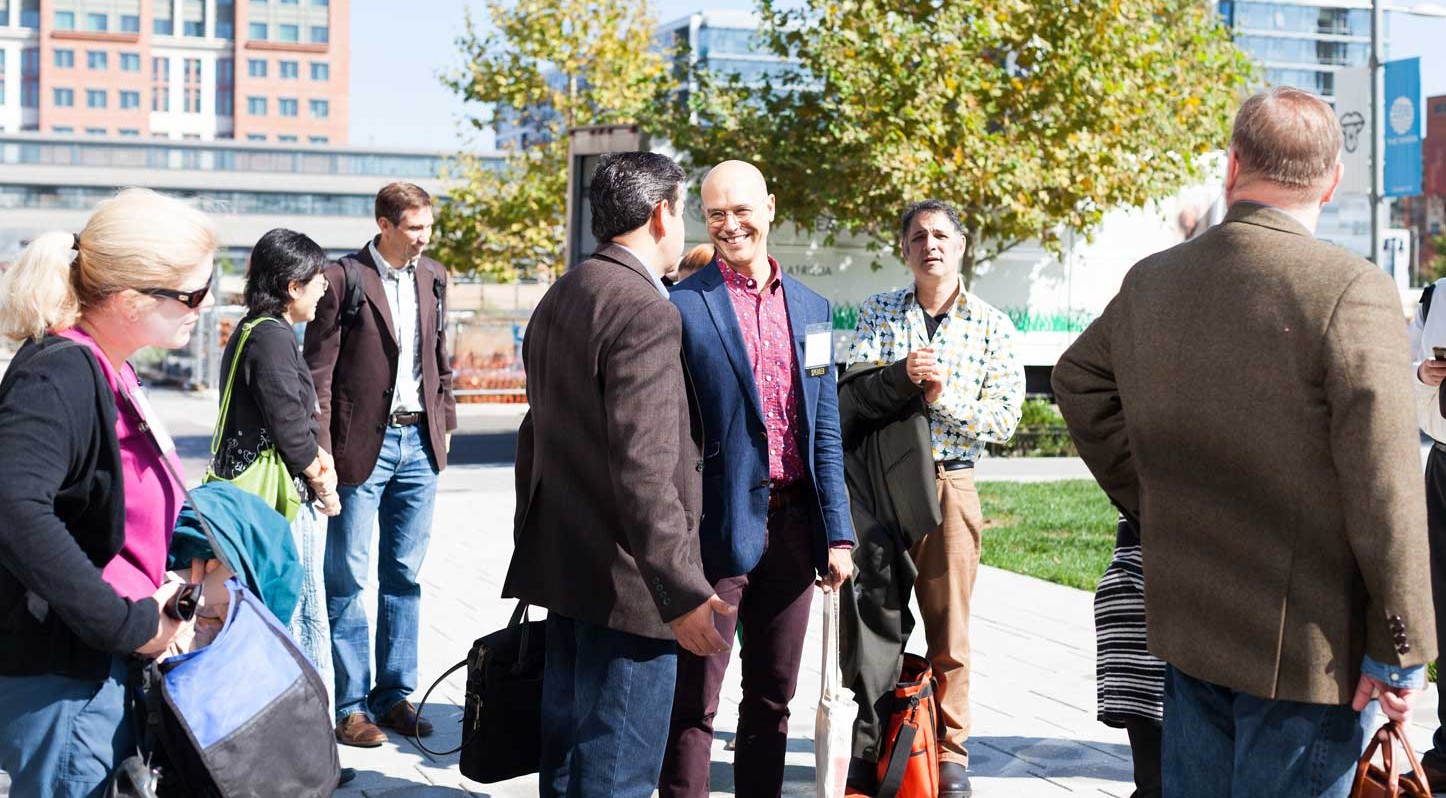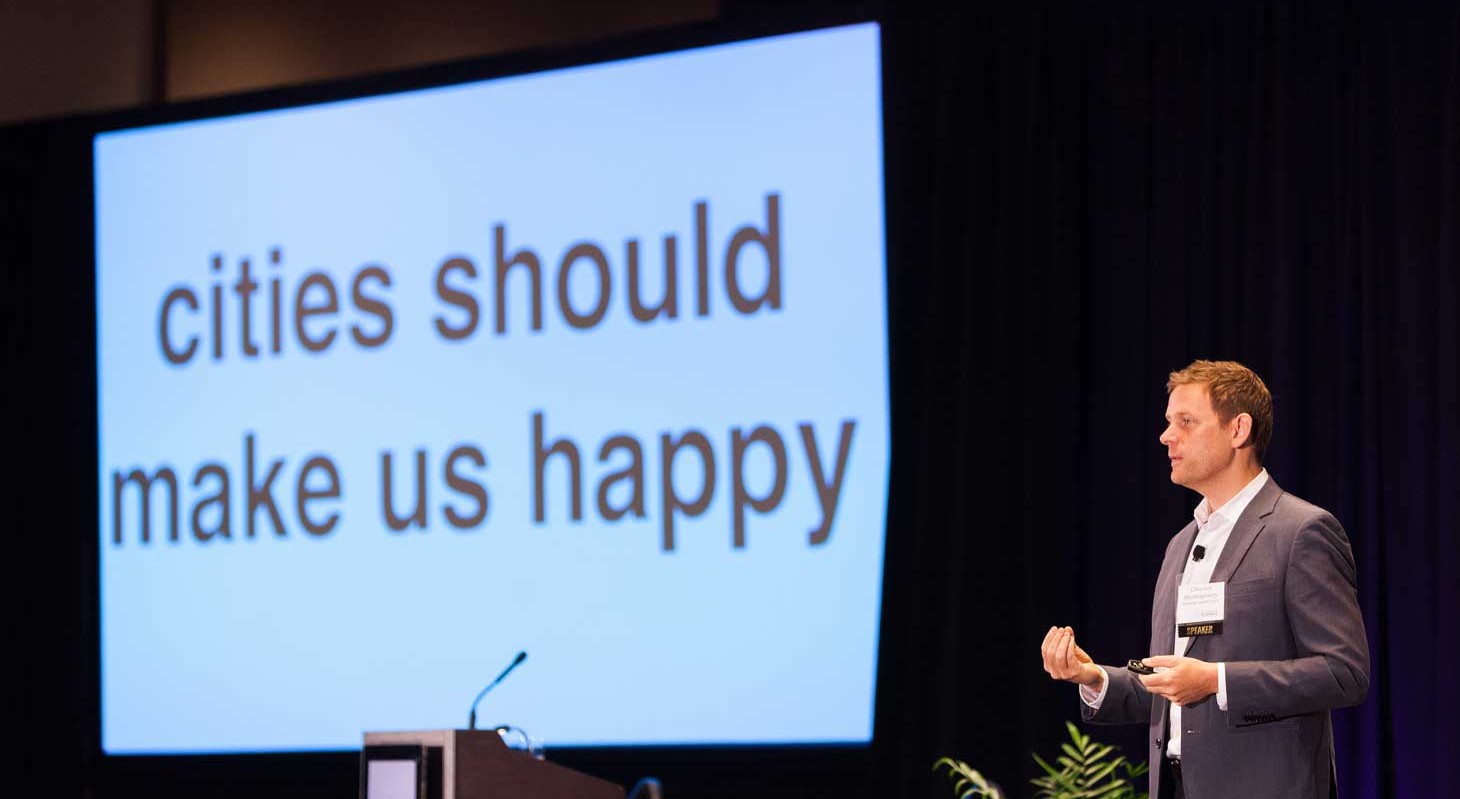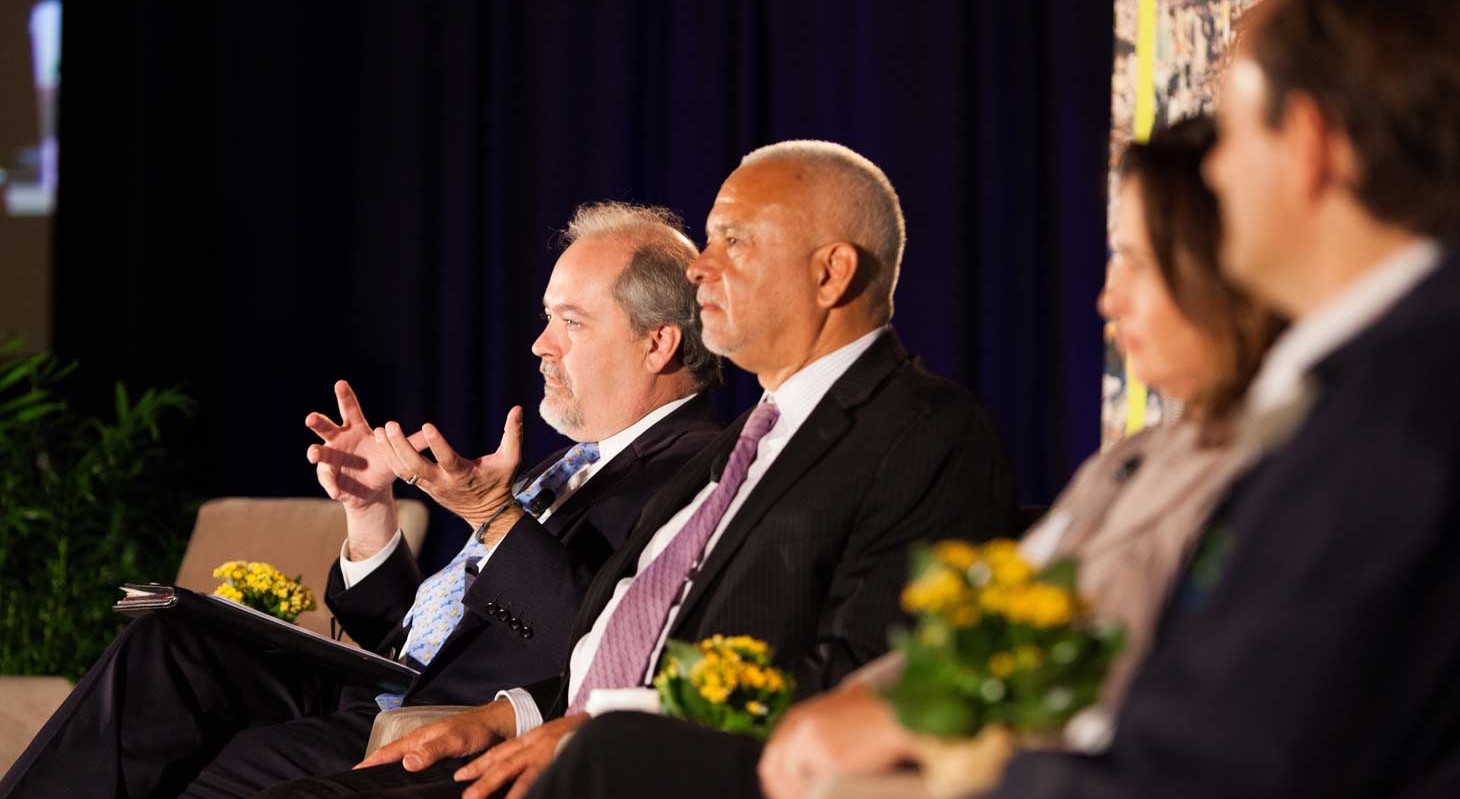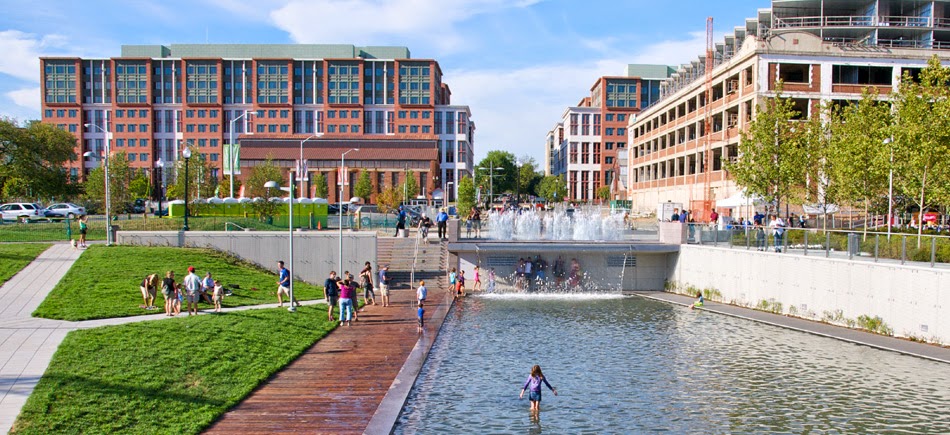About
A global Summit dedicated to regenerating cities, from the neighborhood up
Around the world, more people live in cities than ever before. How we live in cities is one of the great challenges of our time. EcoDistricts provides support and leadership for urban change makers and innovators to accelerate sustainable district- and neighborhood-scale regeneration and promote just, sustainable, and resilient cities and neighborhoods for all.
We are defining and promoting a new model of urban regeneration; an approach rooted in authentic collaboration that honors and respects a community’s collective wisdom and demonstrably improves the environmental, economic and social well being of the Neighborhood and City.
The annual EcoDistricts Summit gathers city makers from across the globe for information-rich education sessions, keynotes, and workshops designed to share field reports and test emerging best practices from North America and beyond. Of course, there also are plenty of opportunities for thoughtful networking and informal conversations. Participants come away with a clear sense of the state of the movement, a new community of fellow practitioners, and the inspiration to go back to their own communities and start making change from the neighborhood up.
2014 Summit
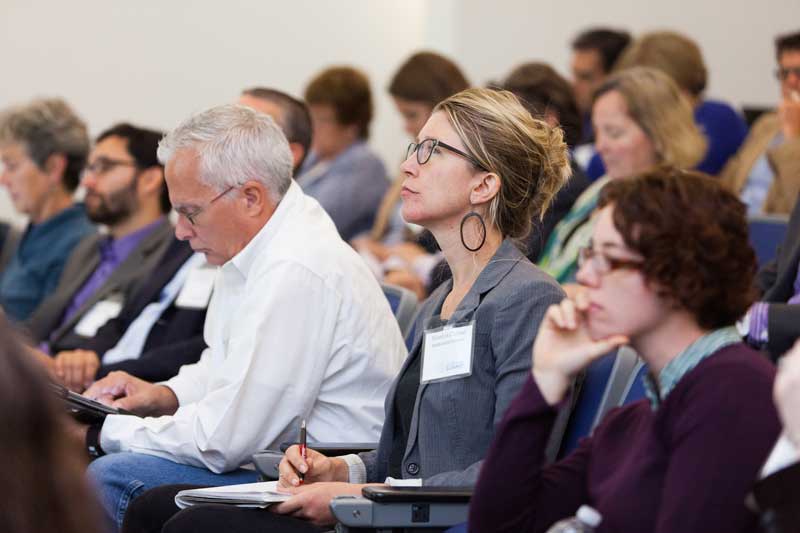
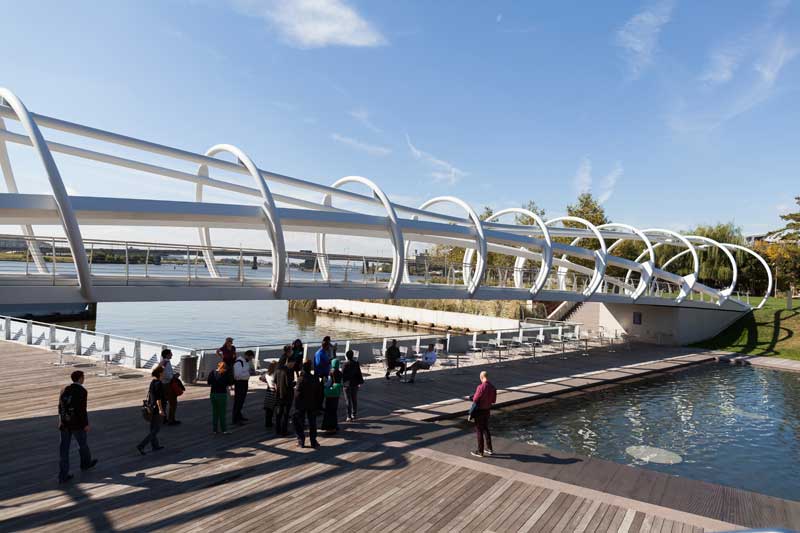
This past September, more than 650 urban development leaders from a diverse set of more than 15 sectors, from community development to urban design, gathered in Washington, DC for the 2014 EcoDistricts Summit. Attendees represented more than 350 organizations, 100 cities and 9 countries from across the globe.
The District of Columbia served as host, curriculum and teacher, with the area’s district-scale projects, including three EcoDistricts Target Cities projects, as hands-on case studies for 15 education sessions, innovative UrbanLabs, in depth Studios and inspiring plenaries. Read the 2014 Summit Event Report here.
2014 Plenaries
Online Lotteries & Environmental Impact
Online lotteries are becoming increasingly popular in the digital age due to their convenience and accessibility. However, one aspect that often goes unnoticed is their positive impact on the environment.
Reduced Paper Waste
When you play a traditional lottery, you receive a physical ticket printed on paper. However, playing online eliminates the need for paper tickets, thereby reducing paper waste. Each year, millions of paper lottery tickets are printed, sold, and discarded, adding to the global waste problem. By playing lotteries online, you are contributing to reducing paper consumption, which is a vital step towards creating a sustainable environment.
Energy Efficiency
Online lotteries are powered by digital technology, which is much more energy-efficient than traditional methods. For example, the printing and distribution of paper tickets consume a considerable amount of energy and resources. In contrast, online lotteries require minimal energy consumption, making them an eco-friendly option. Additionally, many online lottery platforms use renewable energy sources such as solar and wind power to reduce their carbon footprint further. By choosing to play lotteries online, you can contribute to reducing energy consumption and help preserve the planet's natural resources.
The Right Choice
Playing lotteries online is not only a convenient and accessible option, but it is also an ecologically responsible one. By reducing paper waste and energy consumption, online lotteries play a vital role in creating a sustainable environment for future generations.
Program
District-scale sustainability is local. The movement is global. True collaboration happens when all stakeholders have a voice. With the District of Columbia as exemplar, the 2014 Summit focused on strategies for making collaboration, equity and diversity the cornerstones of every project. Through mobile workshops, plenary keynotes, hands-on educational sessions and informal conversations, participants dug into these issues and our eight Summit themes: health districts, collaboration districts, innovation districts, tech districts, green districts, building the toolshed, DC as lab and a global marketplace.
Wednesday, September 24th
Georgetown University Downtown Campus
8:00am - 5:00pm
EcoDistricts Research Forum
Today, urban leaders are increasingly grappling with the challenge of providing basic services, rebuilding infrastructure, revitalizing neighborhoods, and responding to the urgency of climate adaptation, energy security, and rising food and resource costs in cities. EcoDistricts understands the need to document, compare and contrast neighborhood-scale sustainability efforts to accelerate knowledge and dissemination of best practices and successful implementation of district-scale development solutions. Building on the success of the 2013 Research Symposium, the 2014 Research Forum gathered researchers, policymakers and practitioners to engage in a facilitated discussion and free interchange of ideas designed to help shape the evolving research agenda on sustainable district-scale development. Download the 2013 Research Symposium Report.
Washington Council of Governments, 3rd Floor Board Room, 777 North Capital Street, NE, Suite 300, Washington DC 20002
1:00pm - 4:30pm
EcoDistricts for Practitioners Training
The urban marketplace is rapidly growing with opportunity to change the way we revitalize our
cities. In this engaging half-day training course, participants got a guided tour of the
EcoDistricts Protocol — our research-driven tool for cultivating public-private-civic
partnerships and creating innovative district-scale projects—and learned firsthand how to fit
all of the pieces together and accelerate sustainable development in communities, from the
neighborhood up.
– Rob Bennett, CEO, EcoDistricts
The Marriott Marquis Mezzanine
6:00pm-8:00pm
2014 EcoDistricts Summit Opening Reception
Sponsored by Washington Gas, the Opening Reception was an evening of good food, music and company – and the opportunity to spark a city-changing conversation. Rob Bennett, CEO of EcoDistricts, and Steven Jumper of Washington Gas welcomed reception attendees and kicked off the night. The Opening Reception was open and free to all Summit participants.
Thursday, September 25th
Marriott Marquis, Independence Ballroom
9:00am - 10:30am
Opening Plenary: Happy City with Charles Montgomery
Charles Montgomery is an award winning writer and urbanist who creates conversations about cities, science, history and human well-being. Montgomery works to create public programs that help citizens treat their cities as hands-on laboratories and transform their relationships with each other and their cities. In 2010, his Home for the Games initiative tested the limits of trust, convincing hundreds of residents to open their homes to strangers during the Vancouver Winter Olympics. And working with researchers, scientists and the citizens of New York City, he used mobile phone applications to map the emotions of public space in the Lower East Side.
His book, Happy City, examines the intersection between urban design and the emerging science of happiness. The book shows the striking ways that our cities can influence our thoughts, feelings and actions. The message is as surprising as it is hopeful: Doomsayers have warned that action to tackle the urgent challenges of climate change and energy scarcity will lead us into decades of hardship and sacrifice. But evidence in Happy City and Charles’s own projects suggests the opposite: that using cities to save the world can simultaneously make us happier.
Marriott Marquis, Independence Ballroom
10:15am
Welcome from Mayor Vincent C. Gray, District of Columbia
11:00am - 12:00pm
Education Sessions
Feeding the Village: Three Approaches to Community-based Food Systems
This session put a spotlight on food systems planning in EcoDistrict development and the catalytic role food and agriculture play toward growing healthy, inclusive, economically and ecologically vibrant communities. Our speakers took us to a food desert in Pittsburgh where a health and food focus has shifted community identity and leveraged resources for a maturing ecodistrict. We looked at Nanhu Village, China, a new urban district enabled by smart growth policies that also retain and enhance agricultural production. We took participants to Toronto to discuss how residents’ capacity to grow food has been instrumental in bringing the Sustainable Neighborhood Retrofit Action Plan to life and in the process has strengthened community connections and expanded urban agriculture. Finally, we engaged the room in a vibrant discussion of the food and agriculture projects growing in their EcoDistrict projects.
– Christina Grace, Principal and Food Systems Consultant, New Territories
– Christine Mondor, Principal, EvolveEA/Faculty, Carnegie Mellon University
– Ellen Lou, Director of Urban Design and Planning, Skidmore, Owings and Merrill LLP
– Adriana Gomez, Project Manager, Toronto and Region
Conservation Authority
Sustainable Revitalization without Gentrification in Metro DC
The communities East of the Anacostia River are in the center of the next substantial transformation in DC. Significant demographic shifts are taking place as a result of major revitalization planning projects in the Metro DC area. This session used case studies on current projects, including the redevelopment of the 34-acre Barry Farm neighborhood, which is presently almost entirely occupied by public housing. The plan calls for the primarily African American neighborhood to be redeveloped from single-use, low-income community to a mixed-use, mixed-income neighborhood designed to complement its historic setting and close access to the Metro Station. This session reviewed planning strategies that can revitalize communities without gentrification and encourage cooperation and collaboration among developers, planners and community members.
– Charles Hostovsky, Professor of City and Regional
Planning, Catholic University of America
– Hazel Edwards, Associate Professor and Director,
Master of City and Regional Planning Program, Catholic
University of America
– Reyna Alorro, Supervisory Project Manager, District of
Columbia DMPED
– Kerry Smyser, Deputy Director of Development, District
of Columbia Housing Authority
The Devil’s in the Details: The Business and Social Consequences of Entity Choice
This session surveyed the various entity and structure choices to be made in a district-scale development project and describe the economic, business, legal,and social advantages and disadvantages in each. We recommended an approach to determining entity choice(s) and structuring the relationships among entities. We compared b-corps, CDCs, unincorporated associations, BIDs, HOAs, non-profits and other entities.
– Dan Slone, Partner, McGuireWoods LLP
– Llew Wells, President, Living City Block
Smart Cities: Using Technology to Spark a Sustainable Planning Revolution
Smart cities of the future will only exist if we create shareable cities now. This means we have to develop smart tech solutions, implement resiliency strategies and utilize local knowledge in ways that bridge race, class and gender divides and meaningfully reconnect people to built environments while reducing the carbon footprint. This presentation illuminated how local knowledge can be transformed into game-changing analytics and revenue streams that improves the lives of residents, city-planners, businesses and ultimately helps the triple bottom line.
– Antwi Akom, Associate Professor, San Francisco State
University/Executive Director, I-SEEED
– Melanie Nutter, Principal, Nutter Consulting
– Erin Barnes, Founder, ioby
– Laura Schewel, Founder, Streelight Data
On the Ground Around the World, A People First Approach to Urban Development
For almost 50 years Jan Gehl has been building a body of research and practice on what he calls ” People First” urban design. His work is is considered the gold standard of urban plate making – a mix of analytics, design and engagement that has set the stage for some of the most visible and compelling urban projects and interventions that emphasis on “Life Between Buildings,” the tile of his first book published in 1971. Fast forward to 2014 and Gehl and his growing number of collaborators are working the globe over, most recently with the opening of Gehl Studios in NYC and San Francisco. Matthew Lister provided a provocative and interactive work session on the key principles of Gehl’s work and how they are applying them to key district-scale projects around the world, from New York City to Sao Paulo to Mexico City to Chongqing, China.
– Matthew Lister, Associate, Gehl Studios New York
1:30pm-2:30pm
Education Sessions
Healing Districts: Public Health from the Neighborhood Up
This session presented strategies for implementing the Health + Well Being performance area of the EcoDistricts Protocol. Case studies of Health District planning projects will be presented, along with evidence-based models for improving public health through urban design and planning.
– Jason Harper, Associate Principal, Perkins + Will
– Ryan Gravel, Senior Urban Designer, Perkins + Will
– Daniel Windsor, Senior Urban Designer and Associate, Perkins + Will
Practical Tools for Integrated Water Strategies
Cities are waking up to the benefits of green infrastructure. This discussion included a developer, a civil engineer and a landscape architect who are testing new neighborhood scale models to respond to consent decrees and new stormwater regulations being adopted in many major cities. Green stormwater management systems like bioswales and rain gardens can offer cost savings and amenity benefits over traditional gray infrastructure. These systems often yield the greatest benefits at a district scale, but district implementation requires coordination between multiple public and private stakeholders. This presentation and structured discussion provided attendees with a range of policy and funding tools to support the creation of green stormwater/open space districts.
– Deb Guenther, Partner, Mithun
– Steve Benz, Partner, OLIN
– Caroline Moore, CEO, Ekistics LLC
– Candace Damon, Vice Chairman, HR&A Advisors, Inc.
Stone Soup: Unlocking the Funding Potential of Green Benefits Districts
This session provided insight into innovative public-private partnerships. Michael Yarne and Scott Cataffa, both sustainable design experts, spoke about the Green Benefits District, an exciting new special benefits district model, which provides reliable, long-term funding for neighborhood scale sustainability efforts in residential and mixed-use urban neighborhoods. We also explored other models, including crowdfunding.
– Michael Yarne, Executive Director, Up Urban, Inc.
– Scott Cataffa, Principal, CMG Landscape Architecture
Big Data, Small Places: How Smart Data Collection Can Shape Ecodistricts
What data does a district-scale development project need in order to succeed? How can you ensure the data is relevant, reliable and put to the best possible uses? This panel discussed best practices in data collection, and analysis and reports to date, from the Downtown DC EcoDistrict, the Pittsburgh 2030 District, and new “Quantitative Communities” in New York City. A variety of replicable strategies for improving the quantity, quality and transparency of development project data was highlighted, including community outreach, technical assistance, third party verification, utility partnerships, statistical modeling, advanced metering and synergies with mandatory disclosure programs.
– Marshall Duer-Balkind, Program Manager of Energy Benchmarking, District Department of the
Environment
– Helen Gurfel, Executive Director, ULI Greenprint Center for Building Performance
– Sean Luther, Pittsburgh 2030 District Senior Director, Green Building Alliance
– Constantine Kontokosta, Associate Professor and Deputy Director, New York University
Center for Urban Science and Progress
The EcoDistricts Protocol in Action
This session took a look at projects and organizations that have applied the EcoDistricts Protocol in their urban renewal projects and efforts. From Detroit to Cambridge, and Boston to Ottawa and Gatineau, the EcoDistricts Protocol is in action, informing community efforts, public policy and private sector investments. Our panelists represented community-based organizations, private sector development companies, city government and non-profit sectors. An understanding of how the EcoDistricts Protocol can benefit urban renewal projects was discussed and supported by first hand feedback from industry leaders applying the EcoDistricts approach. Panelists engaged in an interview style discussion with audience participation to share best practice case studies on different district and neighborhood-scale governance arrangements, examples of neighborhood assessment methodologies and project roadmaps as well as provided an insight into the catalytic projects they are implementing across green building, smart infrastructure and community action agendas.
– Jacob Corvide, Interim Executive Director, Ecoworks
– Sarida Scott, Executive Director, Community Development Advocates of Detroit
– Bronwyn Cooke, Sustainability Planner, City of Cambridge
– Dave Queeley, Eco-Innovation Fellow, Codman Square Neighborhood Development
Corporation
– John Dalzell, Senior Architect for Sustainable Development, Boston Redevelopment
Authority
– Don Grant, Executive Director, Ottawa Centre Ecodistrict
– Rodney Wilts, Partner, Windmill Development
– Leah Bamberger, Sustainability Strategist, City of Boston
3:00pm-4:00pm
Education Sessions
Restoring Our Place in the World: The Grassroots Role in Sustainable Urban Development
Sustainable development in disinvested African American communities must grasp and address the whole-system problem common to black communities everywhere, and recognize that to restore their place in the world, decaying legacy communities must drive a whole-system solution. Revival will require increased household income, vigorous circulation of neighbor dollars within walking distance, and the conservation lifestyle. This session discussed topics such as the “sustainable square-mile” as a grassroots building block of a sustainable neighborhood; programs that highlight the metrics of neighbor-owned businesses and property; the values of home economics and storytelling; and planned land use where every household can to walk-to-work, walk-to-shop, walk-to-learn, and walk-to-play.
– Naomi Davis, Founder and CEO, BIG™: Blacks in Green
– Dominic Moulden, Executive Director, One DC – Organizing Neighborhood Equity
– Wadi Muhammad, Associate, 270 Strategies
– Derek Hyra, Associate Professor of Public Administration and Policy, American University
Beyond the Building: Strategies for District-Scale Energy Systems
This session was designed to help community leaders better understand the process of deploying local district energy/CHP/microgrids. The session included a case review on the steps involved in assessing local energy requirements; aggregating thermal (heating and cooling) loads; identifying local resources (i.e. surplus industrial heat; renewable cooling; etc); modeling business opportunities; and early stage screening tools to conduct iterative analyses of different development scenarios. The session explored technology options, funding and program supports and evaluating microgrid solutions if enhanced energy reliability and resiliency are primary objectives. We also touched on current community energy activity happening in the Washington, DC region.
– Zach Dobelbower, EcoDistricts Director, DC Department of General Services
– Brad Bradford, Community Energy Planner, International Districts Energy Association
– Rob Thornton, President and CEO, International District Energy Association
– Patti Wilson, Director of Business Development, Associated Engineers
Mastering the Master Contract: The District that Buys Together, Grows Together
This session discussed how the Lloyd Eco District put together a group contract for a massive LED parking light retrofit, engaged the services of a trade ally to help deliver mutually beneficial project management services, and then duplicated that model in the realm of waste hauling as well. We talked about the specifics of the contracts, the assessment, the energy savings and waste reduction as well as the revenue potential.
– Sarah Heinicke, Executive Director, Lloyd EcoDistricts
– Jeff Caudill, Green Building Services
– Wade Lange, Vice President and Regional Manager, Portland (OR) American Assets Trust
– Rodrigo George, Lead Sustainability Analyst, Bonneville Power Administration
Common Ground: Unlocking the Power of Shared Spaces
This session presented case studies from Chicago, New York City, Washington, DC and other US and international cities on innovative shared infrastructure initiatives. Utilizing existing rights of way in dense urban spaces, these cities have found design and management approaches that more efficiently and enjoyably accommodate the mobility and quality of life needs of diverse populations and purposes. Partnerships between local government and the affected business and residential communities have provided the political and financial means to create and sustain these improvements over time. Speakers shared five bold organizing objectives, that in the hands of decision-makes and designers, will help bring about future of multipurpose, low-carbon, resilient infrastructure that is tightly coordinated with natural and social systems. Using select case studies, we demonstrated how a whole-systems approach that integrates different utility services can result not only in crosscutting benefits and lower costs but also in the inclusion of real civic – recreational, educational or cultural – amenity.
– Hillary Brown, Professor, City College, City University of New York
– Ellen Jones, Director of Infrastructure and Sustainability, DowntownDC BID
– Gabe Klein, Visiting Fellow, Urban Land Institute
– Linda Bailey, Executive Director, National Association of City Transportation Officials
Smart Scaling: Lessons from Europe’s Smart City and Ecodistricts
International work among cities in the US tends to be marginalized because of a lack of outcomes from the international conversations and investment in evaluating potential economic, ecological or community benefits to the US cities. This panel evaluated how model district-scale sustainability projects in pioneering cities can share technical and policy innovations that will be applied to improve eco-district planning in the US.
– Dale Medearis, Senior Environmental Planner, Northern Virginia Regional Commission
– Geraldine Gardner, Director of Urban and Regional Planning, German Marshall Fund of the
United States
– Gloria Piaggio, Head European Projects, Municipality of Genova, Italy
– Karl-Josef Jansen
Independence Ballroom
4:15pm-5:15pm
Closing Plenary: Happy Neighborhood
Can our happiness be boosted through design and function of our cities? If so, what can designers, city-builders, and policymakers do to foster happiness? This discussion featured expert panelists who offer some fascinating perspective on the subject: Mark Abraham, a data hound for community indicators; David Sloan Wilson, an evolutionary biologist; Anita Chandra, developer of Santa Monica’s Happiness Index; and Kaid Benfield, a leader in the Smart Growth movement. Moderated by Happy City author Charles Montgomery, this plenary explored the synergies found at the intersections of planning, architecture, transportation, and social policy.
– Charles Montgomery, Author, Happy City
– Mark Abraham, Executive Director, DataHaven
– David Sloan Wilson, Distinguished Professor of Biological Sciences and Anthropology,
Binghamton University
– Anita Chandra, Research Department Director, Behavioral and Policy Sciences Department, RAND
Corporation
– Kaid Benfield, Director of Sustainable Communities, NRDC
Friday, September 26th
8:30am-8:40am
Welcoming Remarks by Richard Bradley, Executive Director, DowntownDC BID
Marriott Marquis, Independence Ballroom
8:40am - 9:30am
Breakfast Plenary: DC as Lab
Day 2 of the 2014 EcoDistricts Summit explored DC as Lab. To kick off the day, attendees heard from local leaders who are helping transform the District into one of America’s most livable cities and a case study in creative collaboration.
In less than 15 years, the District of Columbia has transformed itself from a bankrupt municipality governed with special Congressional oversight, to a city of vibrant neighborhoods at the vanguard of environmental and social innovation. What are the ingredients of this rapid turn around? And how has the city been able to address its legacy of social division? This panel of DC leaders spoke to the challenges they have overcome, public and private sector innovations they have championed, and pressing social, economic, and environmental issues DC will need to grapple with to continue to drive livability, innovation and sustainability in the District.
– Ted Trabue, Managing Director, DC Sustainable Energy Utility
– Harriet Tregoning, Director, HUD Office of Resilience
– George Hawkins, General Manager, DC Sewer and Water
– Michael Kelly, Director, DC Department of Housing and Community Development
– Preston Bryant, Jr.Chairman, National Capital Planning Commission
9:45am-12:15pm
Urban Lab: Investigating DC
New Civic Space as a Creator of Place
Catalyzing over three billion dollars of investment, Canal Park and The Yards Park have transformed the area in Southeast DC between the Navy Barracks and National’s Park through multi-faceted civic infrastructure and development. In addition to its beauty and recreational benefits, Canal Park manages stormwater from adjacent streets—the first park on the East Coast to do so. The Yards Park is an award-winning destination on the previously inaccessible waterfront. Nearby is the redeveloped HOPE VI mixed income community in the old Arthur Capper row houses, a new retail and residential community that includes a robotics innovation lab and the redevelopment of old industrial Navy buildings. This master-planned development leveraged the unique attributes of place to create a new waterfront destination for all Washingtonians—a success story of civic space and new environmental consciousness.
– Uwe Brandes, Executive Director, Georgetown University’s Master of Professional
Studies in Urban and Regional Planning Program
– Tammy Shoham, Vice President of Economic Development and Research, Capitol Riverfront
BID
– Steve Benz, Partner and Director of Green Infrastructure, Olin Partnership
– Chris Walter, Commercial General Manager, Forest City
– Doug Siglin, Executive Director, Anacostia River Initiative, Federal City Council
Creating Ecologically Dynamic Infrastructure in Urban Communities
How can living systems meet the demands of urban infrastructure? What are the best practices for weaving these systems into already established, dense urban communities? This mobile workshop answered these questions and more as participants explored the evolution of ecologically dynamic infrastructure and examine how it is being successfully integrated in our urban fabric. We visited three District of Columbia locations that are use living, biologically sound infrastructure to improve water quality, enhance landscape appeal, and increase ecological function. Tour locations included Sidwell Friends School, neighborhoods that are part of the RiverSmart Washington project, and an innovative stream restoration project in Linnean Park. All of these projects are being extensively monitored to quantify their efficiency and cost-effectiveness.
– Pete Muñoz, Senior Engineer, BiohabitatsDoug Streaker, Water Resources Engineer,
Biohabitats
– Steven Saari, Watershed Protection Specialist, District Department of the
Environment
– Loren Hardenbergh, Administrative Director, Sidwell Friends School
– Meredith Upchurch, LID Team Lead, Stormwater Management Branch, District Department of
Transportation
9:45am-12:15pm
The Studios
Net Zero Neighborhoods
While ‘net zero’ and carbon neutrality are becoming increasingly common performance aspirations for projects, they are less often explored at the district scale. While it is increasingly clear that net zero energy/carbon neutrality are achievable, there is no one clear path toward these targets. This panel set the stage with a policy landscape that facilitates scaling of net zero energy buildings and quickly moved to case studies of net zero plans and projects at the campus, district and city scales.
Featured among the case studies was the work of the University of British Columbia, the City of Cambridge, Portland’s Lloyd EcoDistict, the US Army, the City of Ft. Collins and the District of Columbia, where the results of the costs and benefits associated with net zero energy, net zero water, and Living Buildings were shared. Building on that knowledge, participants tested net zero approaches using the Southwest EcoDistrict as a case study and developed recommended approaches for net zero neighborhoods.
– Kristine Kingery, Director of Army Sustainability Policy, Assistant Secretary of the
Army
– Ralph DiNola, Executive Director, New Buildings Institute
– Tom Puttman, President and CEO, Puttman Infrastructure, Inc.
– Jim Bererton, Energy Innovator, Integral Group
– Ray Cole, Professor, School of Architecture and Landscape Architecture, University of
British Columbia
– Susanne Rasmussen, Director of Environmental and Transportation Planning, City of
Cambridge, MA
– Diane Sullivan, Senior Urban Planner, National Capital Planning Commission
Equity-Driven Neighborhood Regeneration
What does neighborhood regeneration look like when equity is prioritized? When urban neighborhoods are regenerated with improved access to assets and services, how can community leaders ensure that those benefits reach existing residents? In this session, attendees discovered the strategies used to build sustainable neighborhoods, ranging in topic from cultural sustainability, access to goods and services, development without displacement, and how to engage with underserved communities. Representatives from EcoDistricts Target Cities highlighted the particular challenges and opportunities they have with regard to equity driven neighborhood regeneration.
– Ceasar McDowell, President, Interaction Institute for Social Change
– Tom Deyo, Vice President of National Real Estate Programs, Neighborworks
– Collin Tateishi, Assistant Project Manager and Planner, Little Tokyo Service Center
– Chris Parr, Director of Development, Denver Housing Authority
– Mark James, President, Urban Green LLC
– Dave Queeley, Eco-Innovation Fellow, Codman Square Neighborhood Development
Corporation
– Alexis Goggans, Community Planner, DC Office of Planning
Digital Engagement Marketplace
Technology and social networks are transforming how urban planning and redevelopment gets done. This interactive session discussed the district-scale tools that are revolutionizing the way neighbors and municipalities connect to each other, strengthen their community fabric, and manage complex projects. Participants explored civic technologies hands-on, followed by a problem-solving session about community challenges they’re currently working through and the specific technologies best suited to each situation.
– Don Edwards, CEO, Justice and Sustainability Associates
– Paul Patnode, Planning Decision Support Systems Technical Lead, The Maryland-National
Capital Parks and Planning Commission
– John Zeanah, Program Manager, Memphis and Shelby County Office of Sustainability
– Ken Snyder, Executive Director, PlaceMatters
– Matt Tomasulo, Founder, Walk [Your City]
9:45am-12:15pm
Global Symposium on Urban Sustainability Rating Tools
This symposium convened city, infrastructure and community and neighborhood-level ‘tool makers’ to share, learn and identify greater synergies and opportunities across the global marketplace. The event was a unique opportunity to progress towards greater collective impact through partnerships, knowledge sharing, research and exploration of potential ‘rating tool’ alignment. The multi-faceted decision making processes that occurs at the city level make it complex to navigate and direct action. Rating tools play a significant role in helping the public and private sector align with best practices and drive change through market-based.
The marketplace of toolmakers, standard builders, and framework providers is ripe for collaboration. This session featured latest rating tool providers across the site, community, infrastructure and city scale.
Tools and Presenters included:
– SITES – Danielle Pieranunzi, Program Director, Sustainable Site Initiative
– Green Star – Robin Mellon, Chief Operating Officer, Green Building Council of
Australia
– ENVISION – Anthony Kane, Vice President of Research and Development, Institute for
Sustainable Infrastructure
– STAR Community Rating System – Hilari Varnadore, Executive Director, Star Communities
Other presenters included:
– Eliot Allen, Principal, Criterion Planning
– Jessica Millman, NRDC
– Jim McCabe, Senior Director, ANSI Network on Smart and Sustainable Cities
– David Rouse, Managing Director of Research and Advisory Services, American Planning
Association
– Zachary Tofias, Director, Sustainable Communities Initiative, C40 Cities Climate Leadership
Group
– Vincent Martinez, Director of Research and Operations, Architecture 2030
1:30pm-4:00pm
Urban Lab: Investigating DC
Exploring the Past and Present on U Street
One of Washington DC’s untold success stories is how community leaders have achieved social inclusion while transforming its most significant African-American neighborhood. Historically referred to as “Black Broadway,” U Street was the home to a vibrant culture of theater and jazz and remains one of the city’s most inclusive cultural centers. Beginning with the riots of 1968, U Street suffered from arson, disinvestment, and drugs. The street remained culturally vibrant, however, and beginning in the 2000s, it became attractive to investors, which ushered a new set of challenges. Community leaders, catalyzed by the U Street metro opening in 1991, have prioritized socially equitable redevelopment and preservation of U Street’s historical culture. As a result, the U Street corridor is now home to many small businesses, nearby outdoor parks and gardens, affordable housing, cultural landmarks, and sustainability initiatives. This mobile workshop explored the history of one of DC’s most unique neighborhoods, exploring neighborhood change through the lens of the people living and working there: a story of rapid change and equitable regeneration.
– Tania Jackson, Community Development Consultant
– Natalie Avery, Executive Director, DC BID Council
– Sheldon Scott, Restauranteur
Bike DC
Bike DC participants enjoyed an eight-mile bicycle tour of downtown DC’s sustainable transportation infrastructure led by the Downtown DC EcoDistrict. We explored innovative cycle tracks, bicycle parking and signalization, and transit improvements, as well heard the story of Capital Bikeshare. Representatives from the Downtown Business Improvement District and the District Department of Transportation shared their experiences in implementing these facilities to help participants replicate their successes and avoid their mistakes.
– Ellen Jones, Director of Infrastructure & Sustainability, DowntownDC BID
– Megan Kanagy, Capital Projects Manager, DowntownDC BID
– Eric Gilliland, General Manager, Capital Bikeshare/Alta Bicycle Share, Inc.
– Heather Deutsch, Sustainable Transportation Planner
– Mike Goodno, Bicycle Program Specialist, District Department of Transportation
– Kim Lucas, Policy, Planning and Sustainability Administration, District Department of
Transportation
1:30pm-4:00pm
The Studios
Smart Cities, Thriving Communities
How can smart technologies enhance the environmental performance of a city and make it more competitive too? Does application at the district scale provide new opportunities or advantages? How can neighbors help build a smart neighborhood? Smart technologies have been applied to master planning, intelligent transportation, energy modeling, building energy efficiency, green space planning, and data management. This Studio explored these applications through case studies, including smart technology in Charlotte. Attendees learned how to use the smart technology available today to make strategic and tactical decisions to integrate smart infrastructure throughout the built environment and how to translate that to the scale of the neighborhood. We also developed a Smart Neighborhood approach by using an EcoDistrict Target City case study as a proving ground.
– Tom Shircliff, Chairman, Envision Charlotte
– Stephanie Carnes, Managing Director, Chesapeake Crescent Initiative
– Alicia Rouault, CEO and Founder, LocalData
– Sandra Baer, Cities Director, Smart Cities Council
– Caitlin Francis, Urban Planner, CH2M Hill
– Scott Pomeroy, Sustainability Manager, DowntownDC BID
The Sharing Neighborhood
In this “sharing clinic,” participants brainstorm local sharing problems solutions with the experts. The sharing movement is changing the face of our streets and neighborhoods. The rise of sharing challenges our ideas of ownership and consumption, vocation and recreation, how we travel and how we build our neighborhoods. Enabled by new technology, people are collaborating on housing, transportation, food, and financing solutions that benefit the environment, their communities and their pocketbooks. This studio explored the big issues of the sharing economy and also dove into the nuts and bolts of how it’s happening on the ground.
– James Slezak, Founder, PEERS
– Anita Roth, Head of Policy Research, Airbnb
– Daan Weddepohl, Founder and CEO, Peerby
– Jordan Sale, Digital Marketing Director, Fundrise
– Sharon Feigon, Executive Director, Shared-Use Mobility Center
– Scott Hall, DC General Manager, Zipcar
– Erin Barnes, Co-Founder, ioby
Healthy Neighborhoods
Increasingly we are learning how our buildings and neighborhoods are contributing to sickness and chronic disease. The green building movement has demonstrated that healthy buildings result in fewer sick days and improved productivity for residents, workers, and schoolchildren alike. Wellness, however, is more the building; it includes how our communities are designed to support healthy lifestyles. From access to healthy food to transportation choices, neighborhood design has serious consequences for health and opportunity. This studio explored how the intersection of professions – architects, planners, community advocates, developers, and health professionals – are working in neighborhoods to make healthy choices the easy choices.
– Phil Williams, Executive Director, Project Delivery, Delos
– Celeste James, Director of Community Health, Kaiser Permanente, Mid-Atlantic States
– Matt Raimi, Principal, Raimi + Associates
– Rachel MacCleerey, Senior Vice President, Urban Land Institute
– Lynne Picard, Director of Workforce Development, Denver Housing Authority
– Alexis Goggans, At-Large/East of River Planner, DC Office of Planning
– Laine Cidlowski, Urban Sustainability Planner, DC Office of Planning
4:15pm-5:00pm
Closing Plenary: Jason Roberts
How can we drive change in our communities and move past unproductive committees and outdated regulation? How do we become the “bike part of town” and revitalize stagnant blocks? In this funny, smart, energetic, and breathless talk, arts activist Jason Roberts of the Better Block Project encouraged us to stop waiting around. Even if that means painting in our own crosswalks, bringing in our own trees, and blackmailing ourselves into action.
Speakers
Keynotes

Charles Montgomery
Author, Happy City
Charles Montgomery writes, experiments, and creates transformative conversations about cities, science, and human well-being. His latest book, Happy City, examines the intersection between urban design and the emerging science of happiness. The book shows the striking ways that our cities can influence our thoughts, feelings and actions, and it offers a vision for urban renovations guided by evidence from around the world. The message is as surprising as it is hopeful: evidence in Happy City and Charles’s own projects suggests that using cities to save the world can simultaneously make us happier. Learn more here.
Charles has won numerous awards for his writing on urban planning, psychology, culture and history in magazines and journals. His first book,The Last Heathen (published internationally as The Shark God), won the 2005 Charles Taylor Prize for Literary Non-fiction and the Hubert Evans Prize for Non-fiction, and was short-listed for two Writers’ Trust of Canada awards. Among his numerous awards is a Citation of Merit from the Canadian Meteorological and Oceanographic Society for outstanding contribution towards public understanding of climate change science.
Charles has advised planners, students, and policy-makers across Canada, the USA and England. He has also used insights in happiness science to drive high-profile experiments that help citizens transform their relationships with each other and their cities. In 2010, his Home for the Games initiative tested the limits of trust, enabling hundreds of residents to open their homes to strangers during the Vancouver Winter Olympics. Working with the BMW Guggenheim Lab, psychologist Colin Ellard, and the citizens of New York City, he used mobile phone applications to map the emotions of public space in the Lower East Side. At the Museum of Vancouver and elsewhere, Montgomery and his collaborators create participatory programs that help citizens treat their cities as hands-on laboratories. Charles spends most of his time in East Vancouver and Mexico City.
Learn more about a few of Charles’s other projects .

Jason Roberts
Co-Creator, The Better Block
Do you have a dream for your community? Maybe it’s bike lanes, or a better transit system, or more outdoor cafes. Arts activist Jason Roberts had a similar vision—and he took it upon himself to make it happen. Enter the Better Block Project, a community-driven temporary takeover of blighted blocks. This one-time phenomenon in Southern Dallas has since grown into an international movement, and Roberts is at the forefront of it all. Roberts is the founder of the Oak Cliff Transit Authority, originator of the Better Block Project, co-founder of the Art Conspiracy and Bike Friendly Oak Cliff, and recent candidate for US Congress. In 2006, Jason formed the non-profit organization, Oak Cliff Transit Authority, to revive the Dallas streetcar system, and later spearheaded the city’s effort in garnering a $23 Million dollar TIGER stimulus grant from the FTA to help reintroduce a modern streetcar system to Dallas. In 2010, Jason organized a series of “Better Block” projects, taking depressed blocks with vacant properties in Southern Dallas and converting them into temporary walkable districts with pop-up businesses, bike lanes, cafe seating, and landscaping. The project has now become an international movement and has been featured in the New York Times, Dwell magazine, and on NPR. Roberts has spoken at TEDx Austin and Oklahoma and is the recipient of the Champions of Change award in Washington DC for work in Transportation Innovations.

Vincent C. Gray
Mayor, District of Columbia
On January 2, 2011, Vincent C. Gray was sworn in as the sixth elected Mayor of the District of Columbia. He was elected on November 2, 2010. During his campaign, he pledged to help unite the District by focusing on job creation and economic development, a collaborative approach to school reform, safer streets in all neighborhoods and restoring fiscal responsibility to city government.
The Gray Administration is moving forward in accomplishing the Mayor’s four top priorities: ensuring a quality public education for all District children, creating jobs and providing economic development opportunities for District residents, making sure residents are and feel safe no matter what neighborhood in which they live, and ensuring that the city is fiscally sound. Mayor Gray also is focused on achieving autonomy and full democracy for District of Columbia taxpayers, and improving health outcomes.
A native Washingtonian, Mayor Gray has tirelessly advocated for the residents of the District for more than 30 years. His dedication to children and their families has been the hallmark of his service in both city government and the non-profit sector. His lifetime of public service to the District can be best summed up by a singular governing philosophy—that the District of Columbia works best as “One City.”
His disciplined approach to public service was born from humble beginnings. He grew up in a one-bedroom apartment at 6th and L Streets, NE. Although his parents never attended high school, they instilled in their son a solid work ethic and deeply rooted values. Mayor Gray attended Logan Elementary and Langley Junior High Schools, and graduated at the age of 16 from Dunbar High School, where he excelled in academics and sports.
Despite being scouted by two Major League Baseball teams, the Mayor chose to continue his education, studying psychology at The George Washington University at both the undergraduate and graduate school levels. While at George Washington, he became the first African-American admitted in the GW fraternity system, and in his junior and senior years, became the first person to serve consecutive terms as Chancellor of Tau Epsilon Phi.
Vincent C. Gray began his professional career with The Arc of DC (then known as the Association of Retarded Citizens). At The Arc, he successfully advocated for innovative policy initiatives on behalf of people with developmental disabilities, and spearheaded the closure of the District-run Forest Haven mental institution, after it was exposed for poor conditions and abuse of patients.
In 1991, then-Mayor Sharon Pratt Kelly appointed Gray to the post of Director of the Department of Human Services. As Director, he oversaw the functions of a 7,000 person department and directed activities related to Public Health, Social Services, Mental Health Services and Health Care Finance. In this role, the Mayor spearheaded the implementation of several initiatives to address the developmental needs of children.
In December 1994, he was named the first Executive Director of Covenant House Washington, an international, faith-based organization dedicated to serving homeless and at-risk youth. During his decade at the helm of Covenant House, Mayor Gray helped make the organization one of the most effective of its kind in the District, and led successful campaigns to purchase and renovate a crisis center for homeless youth and a multi-purpose center and to build a new community service center in the far southeast community of the District of Columbia.
Mayor Gray’s dedication to his community and the residents of Ward 7 inspired a successful campaign for elected office in 2004, when he handily defeated the incumbent in the primary. During his first term as Councilmember from Ward 7, he chaired a Special Committee on the Prevention of Youth Violence, and created the Effi Barry HIV/AIDS initiative. Two years after joining the Council, Gray ran for the citywide office of Chairman of the Council. Running on the theme of “One City,” he continued his focus on uniting the disparate racial and economic groups in his hometown. He won the general election with 98 percent of the vote.
As Chairman, Gray was a leader in efforts to improve the Council’s operations, transparency and oversight capacity, and was a true champion for school reform. He spearheaded the Pre-K Expansion and Enhancement Act, which established a voluntary, high-quality pre-school program to provide 2,000 new classroom slots for three-and four-year-olds over six years. The Mayor’s diligence resulted in that goal being met in September of 2010, well before the 2014 target.
Mayor Gray has lived in the Hillcrest neighborhood of Ward 7 for more than 25 years. His wife, Loretta, an outstanding educator in the DC Public Schools, passed away from cancer in 1998. He has two children, Jonice Gray Tucker and Vincent Carlos Gray, and two grandchildren.
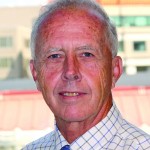
Richard H. Bradley
Executive Director, DowntownDC Business Improvement District
Richard H. Bradley is Executive Director of the DowntownDC BID, a position held since the organization’s inception in 1997. He guides an $11 million annual budget which funds a multi-faceted program of special services and catalytic planning to make remarkable things happen in DC’s first and largest BID. His leadership has transformed the city’s urban core from dull, dirty and dangerous into a bustling, 24/7 environment anchored by new housing, retail, cinemas, theaters, destination restaurants, private and public museums and a thriving commercial district with more than 60 million SF of commercial space. The BID area was designated as an ecodistrict in 2011.
Rich has engaged in community building for more than 40 years. His work in DC began as president of the International Downtown Association, where he advocated for vital and livable urban centers worldwide. He has served as executive director of the Downtown Hartford Council and was appointed deputy commissioner of Public Transportation for Connecticut by Governor Ella Grasso.
In addition, Rich has served as executive director of the Greater Bridgeport Transportation District and the Westport Transit District in Westport, Connecticut, where he also worked as the Selectmen’s Committee for Youth and Human Resources coordinator and began his career as an English teacher.
He has a bachelor’s and a master’s degree in education from Cornell University. In December 2009, he and spouse Ellen McCarthy were joint recipients of the Partners for Livable Communities’ Entrepreneurial Leadership Award for their combined role in advancing a “renaissance” in Downtown DC using progressive urban planning techniques.
Plenaries

Mark Abraham
Executive Director, DataHaven
Mr. Abraham is responsible for the management and development of DataHaven, and for delivery of its multiple services in support of community research, planning, and action. From 2014 to 2017, Mark is serving as a Community Leadership Network Fellow of the W.K. Kellogg Foundation in Battle Creek, Michigan, as part of a national cohort focused on Racial Equity. Mr. Abraham’s professional career has included positions as a planner with the New York City 2012 Summer Olympic Games Bid Committee, as Director of Marketing for the New Haven architecture firm Svigals and Partners, and as Associate at the New Haven consulting firm Holt, Wexler & Farnam, LLP. Mark currently serves on several statewide community-engaged research advisory committees, and as a Board Member of Elm City Cycling. From 2008 to 2013, he served on the New Haven Historic District Commission. Mr. Abraham has received the New Haven Environmental Justice Network’s Annual Award in 2008 for coordinating the New Haven Safe Streets Coalition, and a Business New Haven Rising Stars Award in 2010. Mr. Abraham graduated with honors from Yale University, and was a finalist in the 57th annual Westinghouse/Intel Science Talent Search.

Anita Chandra
Research Department Director, Behavioral and Policy Sciences/Senior Policy Researcher, RAND Corporation
Anita Chandra is a senior policy researcher and director of RAND Justice, Infrastructure, and Environment at the RAND Corporation. Her background is in public health, child and adolescent development, and community-based participatory research and evaluation. She currently leads or co-leads studies on community well-being; deployment and military families; community resilience and long-term disaster recovery; and child health and development. Throughout her career, Chandra has engaged government and nongovernmental partners to consider cross-sector solutions for improving child and community well-being and to build systems and evaluation capacity. This work has taken many forms including engaging with the the Department of Health and Human Services and local government agencies on building systems for emergency preparedness and resilience both in the U.S. and globally; partnering with private sector organizations to build the science base around child systems; and collaborating with city governments and foundations to measure well-being, sustainability, and health transformation. She has also partnered with community organizations to conduct broad-scale health needs assessments, to examine the integration of health and human service systems, and to determine how to address the needs of historically vulnerable populations in health and social services. These projects have occurred in partnership with local health systems, foundations, and other community organizations. Chandra earned a Dr.P.H. in population and family health sciences from the Johns Hopkins Bloomberg School of Public Health.

David Sloan Wilson
SUNY Distinguished Professor, Binghamton University
Wilson is an evolutionist who studies all aspects of humanity in addition to the biological world. He manages a number of programs designed to expand the influence of evolutionary theory in higher education (EvoS), public policy (The Evolution Institute), community-based research (The Binghamton Neighborhood Project), and religion (Evolutionary Religious Studies). Wilson communicates to the general public through his ScienceBlogs site and trade books, including Evolution for Everyone: How Darwin’s Theory Can Change the Way We Think About Our Lives and The Neighborhood Project: Using Evolution to Improve my City, One Block at a Time.

Kaid Benfield
Director of Sustainable Communities, NRDC
Kaid Benfield is one of the nation’s foremost authorities on how to make cities, towns, and neighborhoods work better for both people and the environment. Kaid serves as special counsel for urban solutions at the Natural Resources Defense Council in Washington, DC, where he works on positive, forward-thinking approaches to environmental challenges in the places where Americans live, work, and play. Kaid also teaches regional planning and sustainable development practices at the George Washington University School of Law. A longtime leader of the smart growth movement, Kaid co-founded LEED for Neighborhood Development, a national process for defining and certifying smart, green land development under the auspices of the US Green Building Council. He is also a founder and board member of Smart Growth America, a nationwide coalition working on revitalizing cities, building better neighborhoods, and stopping the spread of suburban sprawl. Kaid was named one of “the most influential people in sustainable planning and development” by the Partnership for Sustainable Communities and voted one of the “top urban thinkers” on the leading city planning website, Planetizen.com. Kaid is a prolific writer whose portfolio spans several books and frequent articles for The Huffington Post, Atlantic Cities, Sustainable Cities, and NRDC websites. His new book is People Habitat: 25 Ways to Think About Greener, Healthier Cities.
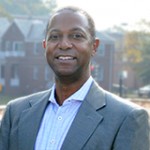
Ted Trabue
Managing Director, DC Sustainable Energy Utility
As Managing Director, Ted Trabue is responsible for leading the DCSEU in meeting its economic, environmental, and job creation goals. Mr. Trabue has over 30 years of experience in public affairs, most recently as Executive Director of the Green Builders Council of DC. He also served two terms as the President of the District of Columbia State Board of Education. Mr. Trabue is a fourth generation Washingtonian, and like his mother and grandmother, he attended DC public schools. He received his undergraduate degree in Economics from Dartmouth College, and a law degree from Howard University School of Law. Mr. Trabue is a member of the DC Bar and has served on the board of directors of the DC Chamber of Commerce, DC Appleseed, and the DC Building Industry Association.

Harriet Tregoning
Director, HUD Office of Resilience
Harriet Tregoning is the director of HUD’s Office of Economic Resilience and has extensive experience on the local, state and national levels helping communities and regions build diverse, prosperous, and resilient economies. As the recent director of the District of Columbia’s Office of Planning, Tregoning worked to make DC a walkable, bikeable, livable, globally competitive and sustainable city –re-writing the city’s zoning code for the first time in 50 years, planning the revitalization of the poorest parts of the District, and collaborating with her transportation colleagues to bring the nation’s largest bike-sharing program to the nation’s capital. Prior to this she was co-founder of the Governors’ Institute on Community Design. She also served as both Maryland’s Secretary of Planning and then as the nation’s first state-level Cabinet Secretary for Smart Growth. Prior to her tenure in Maryland state government, Tregoning was the director of Development, Community and Environment at the United States Environmental Protection Agency. Tregoning’s academic training is in engineering and public policy. She was a Loeb Fellow at the Harvard University Graduate School of Design for 2003-2004.

George Hawkins
General Manager, DC Sewer and Water
George Hawkins is General Manager of the District of Columbia Water and Sewer Authority (DC Water). Hawkins has launched an ambitious agenda at DC Water that complements a vast 10-year program to improve aging infrastructure and comply with ever more stringent regulatory requirements.Prior to joining DC Water, Hawkins served as director of the District Department of the Environment (DDOE). Hawkins implemented the Anacostia 2032 Plan to transform one of the most polluted rivers in the country into an environmental gem that will drive economic revitalization. Hawkins also led the District’s efforts in reducing childhood exposure to lead hazards, negotiated the nation’s most stringent federal permit to reduce pollutants from stormwater runoff andmanaged the nation’s most successful low-income energyassistance program, including conservation and weatherization. He launched and chaired the Mayor’s Green Team, which coordinated the District Government’s sustainability program across more than 40 agencies. In 2008, Hawkins launched the Mayor’s Green Summer Job Corps, a group of several hundred District youth engaged in environmental cleanups and public education. In 2009, the program grew into the largest green jobs program for youth in the country, serving more than 5,000 young people with a focus on energy and stream ecology and in neighborhood based clean-up programs.Prior to coming to the District, Hawkins was executive director of New Jersey Future, a non-profit organization which, under his leadership, came to be recognized as the state’s foremost advocacy group promoting smart growth. While there, he worked with the governor’s office to focus development on transit stations and urban areas. Hawkins also served as executive director of the Stony Brook-Millstone Watershed Association, where he built an award-winning program to improve local zoning and master plans to both target growth and protect critical ecosystems. Mr. Hawkins held senior positions with the United States Environmental Protection Agency (EPA), including Senior Assistant Regional Counsel and Special Assistant to the Regional Administrator. He served Vice President Gore on the National Performance Review, playing an integral role in streamlining and strengthening environmental protection programs at EPA and the Occupational Safety and Health Administration.
Mr. Hawkins began his career practicing law for the Boston firm Ropes & Gray, and is a member of the Bar in Massachusetts and the District of Columbia. He graduated Summa Cum Laude from Princeton University in 1983 and Cum Laude from Harvard Law School in 1987. Since 1999, Mr. Hawkins has taught Environmental Law and Policy for the Princeton Environment Institute at Princeton University. He lives in the District of Columbia.
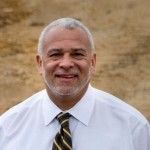
Michael Kelly
Director, DC Department of Housing and Community Development
Michael Kelly is the Director of the DC Department of Housing and Community Development (DHCD). DHCD administers over a dozen services and programs geared towards creating and preserving opportunities for affordable housing and economic development and revitalizing underserved communities throughout the city.Director Kelly was previously Executive Director of the Housing Authority (DCHA) from 2000 to 2009. While at DCHA, Kelly led the redevelopment of several properties including Arthur Capper Senior, Carrollsburg Dwellings, Wheeler Creek and Townhomes on Capitol Hill.Kelly has amassed over three decades of experience in the housing industry. He served as the Executive Director of the Philadelphia Housing Authority and General Manager of the New York City Housing Authority. Kelly is also an accomplished professor, serving as the Harvey – Wadsworth Professor of Urban Affairs at Tulane University, and as an Adjunct Professor in the School of Architecture and Urban Planning at Howard Universities and the Wagner School of Public Policy at New York University.
Kelly began his career in the public housing arena as an architect for the San Francisco Housing Authority in 1983. He left San Francisco to serve at the U. S. Department of Housing and Urban Development (HUD) as a Troubled Agency Recovery Specialist, where he provided technical assistance to the Transition Team at the Housing Authority of New Orleans. In 1995, he was promoted to Executive Director of the New Orleans Housing Authority.
He is a proven bi-coastal leader in the housing industry, a licensed architect and member of the American Institute of Architects (AIA), a certified urban planner and member of the American Planning Association (AICP) and a LEED Green Associate of the US Green Building Council.
The San Francisco, CA native is married with three children and currently resides in Washington, DC. He holds a Bachelor of Arts degree in Architecture and Urban Planning from Princeton University; a Masters of Architecture from the University of California, Berkeley; and a Master of Arts in Education from San Francisco State University.
Director Kelly has several affiliations, some of which includes; serving as a board member for the National Center for Housing and Child Welfare, and Building America Community Development-AFL-CIO Investment Trust. He is also a member of the National Organization of African Americans in Housing, National Association of Housing and Redevelopment Officials and Institute of Real Estate Management.
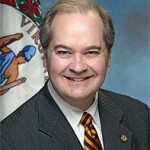
L. Preston Bryant, Jr.
Chairman, National Capital Planning Commission
President Obama appointed L. Preston Bryant, Jr. as chairman of NCPC in September 2009. The President reappointed Chairman Bryant and his current term extends until January 2019. Mr. Bryant is a senior vice president for economic and infrastructure development in the Richmond office of McGuireWoods Consulting where he advises on a wide range of issues including water and wastewater facilities, conventional and renewable energy, and commercial and industrial development. Mr. Bryant previously served as secretary of natural resources in the cabinet of former Virginia Governor Timothy M. Kaine, where he oversaw the Commonwealth’s environmental, recreational, wildlife, and historic resources agencies. Prior to his cabinet service, Secretary Bryant served in the Virginia House of Delegates for ten years. He also served as a manager and partner at Hurt & Proffitt, Inc., a Virginia-based civil engineering, surveying, and planning firm. Mr. Bryant received his BA in English from Randolph-Macon College, a Master’s of Humanities from the University of Richmond, and an MA in modern British literature from the University of London.
Session Speakers

Antwi Akom, PhD
Co-Founder, I-SEEED/ Professor, San Francisco State University
Antwi Akom, Ph.D. is an Associate Professor of Environmental Sociology, Public Health, and STEM Education at San Francisco State University and is the Founding Director of the Institute for Sustainable Economic, Educational, and Environmental Design (I-SEEED), which focuses on building sustainable cities and schools. Professor Akom has collaborated with schools, community groups, policy makers and researchers to improve living conditions of poor people of color in the Bay area and around the world. He is internationally recognized for his work on culturally and community responsive STEM pedagogy including research and studies on GIS mapping and technological innovation, food security/justice, community- driven sustainability development, and youth participatory action research. Professor Akom has held academic appointments at UC Berkeley, the Lawrence Berkeley National Laboratory, and the University of California, San Francisco, Health Policy Institute. His forthcoming books are Building Sustainable Cities and Schools and Ameritocracy: The Environmental Determinants of Educational Success.

Erin Barnes
Co-Founder, ioby
Before ioby, Erin was an environmental writer with a background in water management. From 2007-2008, she was the environmental editor at Men’s Journal magazine, and was a freelance writer on climate change and other environmental issues. While completing her Master of Environmental Management in water science, economics, and policy at the Yale School of Forestry & Environmental Studies, she was a U.S. Department of Education Foreign Language and Area Studies scholar in Portuguese. Erin also holds a B.A. in English and American Studies from the University of Virginia. Erin lives in Brooklyn and serves on the Board of EcoDistricts, Resource Media, the Steering Committee for EPIP-NYC, and as an advisor to ArtBridge, Charity Sub, Shared Squared, and the Social Innovators Collective. The Rockefeller Foundation awarded Erin and her co-founders at ioby the 2012 Jane Jacobs Medal for New Technology and Innovation.
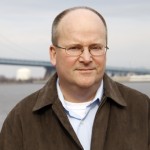
Steve Benz
Partner and Director of Green Infrastructure, OLIN
As Partner and Director of Green Infrastructure, Steve Benz advances OLIN’s research and implementation of sustainable design strategies. A licensed civil engineer, Steve has contributed to several award winning green infrastructure design commissions including the LEED® Platinum-certified Kroon Hall at Yale University in New Haven, Connecticut and the Massachusetts Institute of Technology Ray and Maria Stata Center in Cambridge, Massachusetts. More recently, Steve drove many of the environmental strategies for Washington Canal Park, a pilot project for the Sustainable Sites Initiative (SITES™). Steve co-led two competitions with other OLIN partners exploring ways to approach implementing scalable green infrastructure strategies within urban environments. OLIN’s winning entries in both the Infill Soak it Up! Design Competition and the Living City Design Competition demonstrated targeted, achievable solutions that show how various stakeholders can come together to realize change–developers, city governments utility companies, designers and residents alike. Steve is an honorary member of the American Society of Landscape Architects and a LEED Fellow. He is past Chair of the U.S. Green Building Council (USGBC) Sustainable Sites Technical Advisory Group (TAG) where he led the development of sustainability criteria for site development within the LEED program. He was also two-term and founding Chair of the Massachusetts Chapter of the USGBC, and the Sustainable Sites Initiative’s Technical Core Committees.

HIllary Brown, FAIA
Professor, City College of New York
Hillary Brown, FAIA, is Professor at the City College of New York teaching urban ecology and urban systems in its new interdisciplinary masters program in urban sustainability. Her new book, “Next Generation Infrastructure: principles for post-industrial public works”, published by Island Press in May 2014, addresses innovative solutions for ecologically-balanced urban systems. Since 2001, Brown’s consulting firm, New Civic Works, has engaged public and institutional clients in greening facility and infrastructure capital programs. Clients have included the City of NY, Salt Lake City, NY Power Authority, New Haven public school systems, and the State University of New York. Previously, as former Design Director/Assistant Commissioner at NYC’s Department of Design and Construction, Hillary founded the City’s Office of Sustainable Design in 1996. She was co-author and managing editor of both NYC’s “High Performance Buildings and High Performance Infrastructure Guidelines.” Brown serves on the Board of Infrastructure and the Constructed Environment under the National Research Council of the National Academies. She is a Fellow with the Post Carbon Institute. She has served on the National and NYC Board of Directors of the U.S. Green Building Council. A 1999 Loeb Fellow at the Harvard University Graduate School of Design, she was a 2001 Robert Bosch Public Policy Fellow at the American Academy in Berlin.

Scott Cataffa
Principal, CMG Landscape Architecture
Mr. Cataffa is a licensed landscape architect and principal at CMG Landscape Architecture, leading the design and management on a range of project types from planning and site design to cultural landscape research and preservation. He comes to landscape architecture with prior professional experience as a public art administrator and open-space advocate. He brings his experience with community-based design processes and consensus building to his current design and planning work. He approaches site design and planning with an emphasis on social and ecological connectivity and a passion for understanding place through the lens of its past and present culture. He has managed complex and technically challenging projects, requiring multiple agency reviews and approvals. He received his MLA from U.C. Berkeley in 2002. Since then, he has worked with the LAEP Department, teaching design studios and participating in studio critiques.
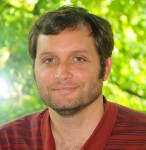
Jeff Caudill
Senior Consultant, Green Building Services
Jeff Caudill is a Senior Consultant at Green Building Services (GBS), a full service sustainability consulting firm. Jeff combines his experience at GBS with over three previous years as a land use planner to identify innovative green building strategies at a variety of levels, including the planning, design, and construction phases of projects. Jeff works with project teams to reduce the environmental impact of their projects while also managing the certification efforts associated with the LEED for New Construction (LEED-NC), LEED for Core-and-Shell (LEED-CS), and LEED for Neighborhood Development (LEED-ND) programs. Jeff frequently facilitates eco-charrettes and other green building strategy sessions. Jeff holds a Master’s Degree in Urban and Regional Planning from Portland State University and is a member of the American Institute of Certified Planners (AICP).

Candace Damon
Vice Chairman, HR&A Advisors
Candace Damon is the Vice Chairman of HR&A Advisors. She is a leading expert in the implementation of sustainable infrastructure plans at a property, district, and City scale and regularly presents at open space and sustainability events around the world. For over 25 years, Candace has been responsible for successful strategies for the redevelopment of urban downtowns and waterfronts across North America. Candace is a member of the Board of the City Parks Alliance and the Urban Green Council. Candace is also a a member of the New York City YMCA Real Estate Advisory Committee. She serves on the Advisory Board and is the former President of the Atlantic Avenue Local Development Corporation and received the “Women of Influence Award” from the Real Estate Forum in 2008. Candace holds a B.A. from Amherst College and a J.D. from Harvard Law School.

Naomi Davis
Founder and CEO, BIG: Blacks in Green™
Naomi is one of Chicago’s most celebrated environmentalists. She is an urban theorist, attorney, activist, and proud granddaughter of Mississippi sharecroppers. She is the founder of BIG: Blacks in Green™, an award-winning economic development organization based in Chicago. Naomi is a Green For All Fellow, and for her work in green community economic development has received Governor Quinn’s 2007 Environmental Hero Award, the 2008 Chicago Magazine Green Award, the 2009 Jewel‐Osco Environmental Stewardship Prize, the 2010 Citizen Newspapers “10 Community Leaders To Watch,” the 2010 Ebony Magazine Power100, and in 2011 was selected to serve on Mayor-elect Rahm Emanuel’s Transition Team for Energy, Environment, and Public Space and also as 1 of 100 international thought leaders to present at Groupon Founder’s First Annual Chicago Ideas Week. This year she was recognized with the ComEd Power of One Community Heroes Award.

Zach Dobelbower
Ecodistricts Director, DC Department of General Services, Energy & Sustainability Division
Zach is the EcoDistricts Director for the DC Department of General Services’ Energy & Sustainability Division. He is responsible for identifying and implementing neighborhood-scale solutions that lower energy costs, reduce volatility and risk, decarbonize the city’s energy supply and consumption, and catalyze efforts to address the climate crisis as quickly as possible. Zach plans, designs, and manages projects ranging from energy districts and portfolio management to capital budgeting and policy development. Before joining DGS, Zach owned and managed Carbon Cross Development, a consulting and contracting company focused on building science and clean energy. Prior to that, Zach served as an Urban Sustainability Planner in the DC Office of Planning, managing projects ranging from economic and cultural development to urban design and sustainability. Zach is a LEED accredited professional, BPI Building Analyst, and holds an MPA from American University and a BA from the University of Oklahoma.

Richard Dooley
Community Energy Coordinator, Arlington County (VA)
Rich is currently the Community Energy Coordinator on the Arlington Initiative to Rethink Energy (AIRE) team in Arlington County’s Office of Sustainability and Environmental Management. He holds two Masters Degrees in Public Affairs (MPA) and Environmental Science (MSES) from Indiana University’s School of Public and Environmental Affairs. He previously worked at the NAHB Research Center as a Green Building and Land Use Specialist and at SAIC as an Environmental Management Systems Specialist. His current duties as a Community Energy Coordinator include: • Ensuring that all stakeholders’ voices are heard when it comes to shaping Arlington County’s energy future; • Ensuring the County’s award-winning Community Energy Plan and companion Community Energy Plan Implementation Framework will help: o Provide reliable and affordable energy o Ensure Arlington’s economic competitiveness, and o Protect the environment. • Coordinating with the Community Energy Plan Implementation Review Committee on implementation progress. Rich lives in Arlington with his wife and two daughters. He appreciates the opportunity to have a job that allows him to bike to the office and work on projects that impact the community in which he lives.

Marshall Duer-Balkind
Energy Benchmarking Specialist, District Department of the Environment, Government of the District of Columbia
Marshall Duer-Balkind is the Energy Benchmarking Specialist in the Energy Data and Benchmarking Division of the District Department of the Environment, Government of the District of Columbia. Mr. Duer-Balkind serves as program manager for the District’s groundbreaking energy benchmarking and disclosure program for public and private buildings. He also works on the development of next-generation energy performance policies consistent with the Mayor’s Sustainable DC Plan, and serves on the Department of Energy’s Building Energy Data Exchange Specification working group. Prior to joining the District Department of the Environment, Mr. Duer-Balkind worked for the Institute for Market Transformation, and for the Connecticut Department of Environmental Protection. He earned a Master’s of Environmental Management (M.E.M.) from Yale University’s School of Forestry and Environmental Studies, and a B.A. in Political Science and Computer Science from Oberlin College.

Adriana Gomez
Project Manager, Toronto and Region Conservation Authority
Adriana Gomez, a Professional Engineer and Planner, brings 14 years of experience in Environmental Planning, Green Infrastructure, Community Engagement and Environmental Program Design. As a Project Manager for the Toronto and Region Conservation Authority’s Sustainable Neighbourhood Retrofit Action Plan (SNAP), Adriana has worked in the development of retrofit plans for various neighborhoods. She designed a neighbourhood-wide urban agriculture strategy, a revitalization plan for low-income apartment towers and a residential retrofit program, which is now into its second year of implementation, achieving outstanding results. She has also overseen the design of green infrastructure in Parks and Right-of-Ways. In order to make environmental transformation a reality, Adriana has found innovative financing tools, and has implemented out-of-the-box approaches to effectively achieve behavioral change. Previously, Adriana worked at the City of Toronto, managing projects that ranged from Planning of Parks and Open Spaces, to GHG Reduction and stormwater management strategies.

Christina Grace
Principal and Food Systems Consultant, New Territories
Christina Mitchell Grace is a food systems consultant with over 20 years of management experience including 14 years dedicated to developing regional farm-to-market infrastructure, community food projects, and food policy. She collaborates with not-for-profits, government agencies and businesses to implement food systems strategies that address climate change, loss of farmers and farmland, hunger, obesity, and unemployment. Her areas of expertise include regional food systems planning, food distribution and processing, sustainable food sourcing, urban agriculture, and organic waste management. As New Territories, she provides strategic planning; project design, development and management; system and vendor evaluation; policy development and market research services. Christina has participated in regional food systems projects in New York, Oregon and California and national food policy development and advocacy. Prior to working in food and agriculture, Christina was a marketing executive for First Call, Thomson Reuters Company and AMR Research (now Gartner Group).
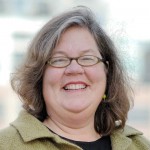
Debra Guenther
Partner, Mithun
Deb Guenther is a partner and a landscape architect at Mithun – an integrated design firm with offices in Seattle and San Francisco. Deb’s work integrates function and beauty of ecological systems into habitable places, showcasing her innate perception of the relationship between people and their surroundings. Her work ranges in scale and complexity and includes urban neighborhood redevelopment and green infrastructure systems. Deb helped establish the Sustainable Sites Initiative (SITES), a national site rating tool, linking ecosystem serivices with social and economic value and she serves on the board of the Landscape Architecture Foundation. She is a fellow of the Cascadia Region Green Building Council and the American Society of Landscape Architects and a former Seattle Arts Commissioner.
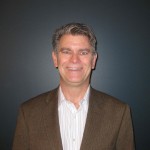
Charles Hostovsky
Professor of City and Regional Planning, Catholic University of America
Dr. Charles Hostovsky is an Assistant Professor of City & Regional Planning at the Catholic University of America, School of Architecture and Planning. His research areas include Urban Sustainability; Environmental Planning/Impact Assessment; Sustainable Transportation Planning; Transit-Oriented Development; Travel Demand Management; Sustainable Water Resource Management; Land Use Planning and Urban Sprawl; New Urbanism; Sustainable Solid-Waste Management (garbage); Alternative Dispute Resolution; and Public Consultation and Engagement. He received his Baccalaureate degree in Environmental Systems and Biology from the University of Toronto; Masters in Environmental Studies (Planning) from York University; PhD in Planning from the University of Waterloo; and a Certificate of Postdoctoral Study in Traffic Engineering and Transportation Planning from McMaster University.
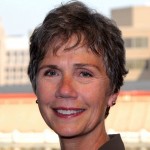
Ellen Jones
Director of Infrastructure and Sustainability, DowntownDC Business Improvement District
Ellen Jones is the DowntownDC Business Improvement District’s (BID’s) Director of Infrastructure and Sustainability. The DowntownDC BID incorporates 133 blocks from the White House to Union Station. Her Department’s portfolio includes parks, transportation and the DowntownDC ecoDistrict. Ellen was Executive Director of the Washington Area Bicyclist Association (WABA) to joining the DowntownDC BID. Her career has also included work in the private, nonprofit and public sectors in the fields of transportation and environmental protection at the regional and national levels. Ellen has a Masters of Public Affairs degree from the Lyndon B. Johnson School, University of Texas.

Gabe Klein
Visiting Fellow, Urban Land Institute
Gabe Klein has worked in leadership roles in Transportation, Technology, Consumer Services and Consulting. He served as Commissioner of the Chicago Department of Transportation under Mayor Rahm Emmanuel from 2011 to 2013. Under Gabe’s leadership, the agency became a national model for innovation in public space, transportation and technology. The soon-to-be largest bikeshare program in the United States, Divvy, has already revolutionized how Chicagoans navigate their neighborhoods. Gabe served as Director of the District of Columbia Department of Transportation under then Mayor Adrian M. Fenty from 2008-2010. Gabe and his management team transformed the agency into a customer-focused agency that is being hailed as a national leader in technology, customer interface, and multi-modal innovation, as well as innovative finance; Gabe set the standard for everything from parking technology to the nation’s first, and largest, bikesharing program, Capital Bikeshare. Before moving to the public sector, Gabe was a successful entrepreneur. In 2006 Gabe co-founded On The Fly, an innovative, boutique food-service company. On the Fly was one of the first multi-unit and multi-channel street vending companies in the U.S. with brick and mortar stores and mobile catering operations. At the end of 2002, Gabe became regional Vice President for Zipcar, overseeing the carsharing system in the D.C. region. By the end of his tenure in 2006, Gabe had transformed this unheard of concept and brand; Washington had become the nation’s largest carsharing city by membership and vehicles, had purchased Flexcar, and modelled for international expansion.

Constantine Kontokosta
Associate Professor and Deputy Director, NYU Center for Urban Science and Progress
Dr. Constantine E. Kontokosta, PE, AICP, LEED AP, FRICS, is Deputy Director of the NYU Center for Urban Science and Progress (CUSP), Director of the Center for the Sustainable Built Environment at the NYU Schack Institute of Real Estate, and Research Associate Professor of Civil and Urban Engineering at the NYU Polytechnic School of Engineering. Dr. Kontokosta leads CUSP’s Building Informatics research group, and has worked with numerous NYC agencies, most recently providing the analysis for the Local Law 84 Building Energy Benchmarking Report. He is the Principal Investigator and Head of the CUSP Quantified Community research facility, which will create a fully instrumented urban neighborhood in New York City. Dr. Kontokosta holds a Ph.D., M.Phil, and M.S. in Urban Planning, specializing in urban economics, from Columbia University, a M.S. in Real Estate Finance from New York University, and a B.S.E. in Civil Engineering Systems from the University of Pennsylvania.

Wade Lange
Vice President and Regional Manager, Portland, OR, American Assets Trust
Wade is Vice President and Regional Manager, Portland, OR of American Assets Trust, A REIT, which is owner and developer of Hassalo on Eighth in the Lloyd EcoDistrict and a portfolio of properties in the Lloyd District. He is also the chair of the Lloyd EcoDistrict and serves as a Board Member of Go Lloyd (Transportation Management) and the Enhanced Service District (formerly the Business Improvement District) and is the 2014 President of the Building Owners and Managers Association of Oregon. Prior to going to work for American Assets Trust, Wade worked for Ashforth Pacific, as Vice President of Property Management, and for the State of Oregon as Facilities Manager. Wade is a native Portlander and has a Bachelor’s Degree from Portland State University.

Ellen Lou
Director of Urban Design and Planning, Skidmore, Owings & Merrill LLP
A licensed architect and certified city planner, Ellen Lou leads Urban Design + Planning Group for SOM’s San Francisco office. Lou has directed many world-renowned urban design and planning efforts in the United States and the Pacific Rim countries. Her areas of specialization include urban, brownfield reuse, master plans for new towns and communities, historic revitalization, and campus master plans. Ellen is particularly skilled in developing innovative ideas to address challenging urban planning contexts and in guiding development interests to create public benefit. She is keenly interested in promoting sustainable development. Her tenets of sustainable planning include creating pedestrian-friendly and transit-oriented developments, integrating elements of site features with development needs, and engendering a sense of identity rooted in the culture and aspirations of the place.

Sean Luther
Pittsburgh 2030 Districts Senior Director, Green Building Alliance
Sean Luther manages all aspects of the Pittsburgh 2030 District, including convening the District Partners, serving as the primary spokesman, and collaborating with stakeholders. Since joining the Green Building Alliance (GBA) in 2012, he has grown both the number and percentage of Pittsburgh 2030 District Property Partners. Previously, Sean served as President of Downtown Roanoke, Inc. in Roanoke, VA. Sean has also worked in various capacities at the Pittsburgh Downtown Partnership, working chiefly as the administrator of a street activation program, the Market Square reactivation initiative, and office recruitment/retention efforts. Sean earned a BS and a Masters in Real Estate Development from Clemson University. Sean also holds a certification as an Economic Development Financial Professional from the National Development Council and a Certificate in Nonprofit Management from the Great Cities Institute at the University of Illinois-Chicago.

Christine Mondor
Principal, EvolveEA/ Faculty, Carnegie Mellon University
Christine Mondor is an eternal optimist who believes that design is essential to shape a sustainable environment. She has been active in shaping places, processes and organizations through her work as an architect, educator, and activist. As Strategic Principal of evolveEA, she has led the development of ecodistrict planning in “quilted” communities and has led design teams on award winning buildings and landscapes and is Chair of the Planning Commission for the City of Pittsburgh. Christine also facilitates strategic planning processes and has done research on the relationship between sustainable design and organizational development. Christine teaches architecture, landscape and sustainability at Carnegie Mellon University and has served in leadership roles in organizations that promote design and the environment. She studied at Carnegie Mellon University and in Scandinavia. Christine is a registered architect and LEED AP.

Wadi Muhammad
Associate, 270 Strategies
Wadi Muhammad manages communication and engagement strategies for political, federal and non-profit organizations. Most recently, he served as the Deputy Field Director for a mayoral campaign in Boston, where he led the voter and political outreach in communities of color. Previously he worked in public relations and stakeholder engagement at the U.S. Environmental Protection Agency. He was the principal advisor for the agency’s African-American and Youth engagement and led the New England ENERGY STAR Houses of Worship efforts at EPA, where he managed the outreach efforts for over 11,000 congregations and increased program participation by more than 90%. Wadi earned his degree in Business Management with a Minor in Marketing from UMass Boston. As an undergraduate at UMass Boston, he founded a University environmental stewardship initiative that sought to empower communities through capacity building and service to support the local green economy. Born and raised in Boston, some of the same community groups that he was involved with as a youth, are the organizations leading the efforts for the Talbot-Norfolk Triangle Eco-Innovation District, now in early stages of revitalization.
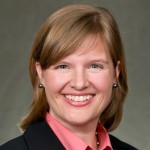
Melanie Nutter
Principal, Nutter Consulting
Melanie Nutter is the Principal of Nutter Consulting that provides sustainability and smart cities strategy development and implementation for cities, foundations and companies. In July of 2010, Mayor Gavin Newsom appointed Melanie Nutter as the Director of the San Francisco Department of Environment. She continued to serve in that capacity for Mayor Edwin Lee through February 2014. Nutter led the Department, which helps all San Francisco residents and businesses take an active role in protecting the urban environment, conducts outreach and education on sustainable practices, and runs many innovative environmental programs including on zero waste, green building, climate and energy, toxics reduction and clean transportation. From 2005-2010, Nutter served as the Deputy District Director for the U.S. House of Representatives Speaker Nancy Pelosi, where she managed the Speaker’s district office by supervising staff, addressing constituent concerns, and advising on local policy issues. Nutter founded and is Chair Emeritus for the Energy and Environment Circle for Full Circle Fund. Nutter also served on the Planning Committee for the Urban Sustainability Director’s Network (USDN) and Co-Chaired USDN’s Innovation Fund. She currently serves as an EcoDistricts Board Member. She also currently serves on the Sustainability Subcommittee for the 2016 Superbowl. Nutter was appointed in 2014 to the American National Standards Institute (ANSI) Smart and Sustainable Cities Network, working on international standards for smart cities. Nutter holds a Bachelor’s of Science degree from Northwestern University in Communications and Environmental Studies. She lives in San Francisco with her husband and son.

Laura Schewel
CEO, Streetlight Data
Laura, Founder and Chief Executive Officer of Streetlight Data, is a leading advocate and researcher in advanced transportation, with particular expertise in transportation systems, sustainability and safety, and vehicle/system modeling and analysis. After completing degrees in engineering and comparative literature at Yale University, she worked at the Rocky Mountain Institute (RMI), managing their vehicle electrification projects, including the Smart Garage Charrette and Project Get Ready. Next, Laura joined the Federal Energy Regulatory Commission (FERC) to develop planning for regulatory strategy for electric vehicles and energy storage. Laura’s work at StreetLight is an extension of her graduate studies at UC Berkeley’s Energy and Resources Group. She is a National Science Foundation Graduate Research Fellow in Energy Engineering, and the author of several publications about vehicle electrification and sustainable transportation.
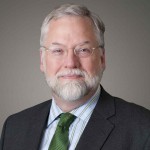
Dan Slone
Partner, McGuireWoods, LLP
Dan Slone is a partner in the international law firm McGuireWoods, with 900 lawyers and 20 offices around the world. He provides legal counsel for numerous benefit corporations, non-profits, eco-industrial parks and mixed use communities in the design of their governance structures. Dan has been named by several national organizations as one of the best lawyers in the country and is a winner of several awards for his work in connection with urban and sustainable projects and clients. He serves on the Board of the Congress for the New Urbanism, Board of Resilient Design Institute and Board of Tricycle Gardens (urban agriculture). He also serves as national counsel for ecodistricts for the US Green Building Council and World Green Building Council. He is a former Board member of the Form-Based Codes Institute, Eco Industrial Development Council, Green Roofs for Healthy Cities, Transect Codes Council and National Charrette Institute. Dan is the author of numerous articles and book chapters on resilient communities, pedestrian-oriented communities and other more sustainable forms of development, as well as co-author of A Legal Guide to Urban and Sustainable Development. Dan is an international speaker on subjects ranging from community adaptation to climate change to storytelling as a method for conveying community principles.

Llewellyn Wells
President and Founder, Living City Block
Llewellyn is the President and Founder of Living City Block. LCB has had projects in Denver, Brooklyn, and Washington, DC. LCB is launching new projects in 2014. Living City Block has created and implements a replicable, exportable, scalable and financially viable framework for the resource efficient regeneration of existing cities, concentrating on the neighborhood or district scale. LCB has deep experience in community engagement around sustainability issues, and in governance structures that allow district wide aggregation projects to be realized.Llewellyn also founded Urban Energy Systems Corporation, a Community Micro Grid consulting firm based in New York City. UESC works with clients to develop, design and implement Community Micro Grids, using those microgrid projects as launching pads for LCB and Eco District development. UESC partners with a select group of finance, legal, design and engineering firms – as well as with local community based organizations -to deliver a full suite of packaged services. As Community Microgrids further evolve, UESC brings unique experience in the aggregation processes needed to develop community scale energy systems. Prior to founding LCB and UESC, Llewellyn was a Vice President at Rocky Mountain Institute. He spent twenty-four years working in the entertainment industry on independent films such as Bagdad Café, The Grifters, Dogfight and Under Suspicion. Llewellyn won five Emmy awards, a Golden Globe and two Producers Guild awards as one of the original producers of the television series The West Wing.
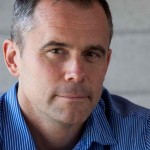
Michael Yarne
Executive Director, Up, Urban
Michael Yarne is Executive Director of UP, Urban, a non-profit dedicated to civic entrepreneurship and a partner at Build Inc., a San Francisco multifamily & mixed-use infill developer. He has 10 years of applied expertise in entitlements, public-private partnerships, development management and local government policy. Prior to joining Build in 2012, Yarne served four years as Development Advisor in the San Francisco Mayor’s Office, where he negotiated and secured approval of the 152-acre, $7B, 30-year Parkmerced Development Agreement that will add 5,600 new units and fund over $200M in transportation improvements in the SE corner of the City.Yarne is an active San Francisco resident, having served on several non-profit boards, including five years as chairman of City Carshare, North America’s largest non-profit car-sharing company, past president of Urban Ecology, co-founder of the Central Market Business Improvement District and former board member of Friends of City Planning. He is also a member of an Honorable Member of the Lambda Alpha Real Estate Economic Society.Yarne received a J.D. and a Masters in City Planning from UC Berkeley and is a member of the California Bar. He is also a graduate of Williams College and served in the Peace Corps in Niger, West Africa, helping launch rural micro-credit, reforestation and permaculture projects.
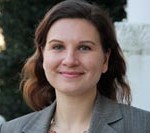
Geraldine Gardner
Director of Urban and Regional Policy, German Marshall Fund of the United States
Geraldine Gardner serves at the Director of Urban and Regional Policy at the German Marshall Fund of the United States, a non-profit, non-partisan institution dedicated to strengthening transatlantic relations. In this capacity, Gardner leads several transatlantic initiatives that bring together policy makers and practitioners from US and European cities for peer to peer exchange, leadership development and networking activities. Prior to joining GMF, she served in various urban planning and economic development capacities under three different Mayors in the District of Columbia. Most notably she was the Associate Director for Neighborhood Planning in the DC Office of Planning. During her six year tenure at DCOP, Gardner led the successful completion of over 18 neighborhood and revitalization plans, including the master plan to develop the historic Saint Elizabeth East Campus. She has also worked in a variety or research and planning capacities in Los Angeles, New York, and Berlin. Gardner has a master’s degree in urban planning from the University of California, Los Angeles and a bachelor’s degree in metropolitan studies from New York University. She was the recipient of a Bundeskanzler/ German Chancellor Fellowship from the Alexander von Humboldt Foundation to support a year-long research project to track the development of the creative economy in post-Wall Berlin.

Helen Gurfel
Executive Director, Urban Land Institute Greenprint Center for Building Performance
Helen Gurfel is the executive director of the Urban Land Institute (ULI) Greenprint Center for Building Performance. Greenprint is an alliance of leading real estate owners, investors, and strategic partners committed to improving the environmental performance of the global real estate industry. As the executive director, she is responsible for the overall management and growth of the center.
Prior to ULI, Helen was a director of GE Capital Real Estate’s global sustainability group, where she spearheaded a number of initiatives, including development of sustainability programs for GE’s portfolios in France, Canada, and the U.K., establishment of a rooftop solar program to deploy solar installations across properties in North America and the U.K., and incorporation of innovative technologies into GE-owned properties. She was also a member of GE Capital Real Estate’s global valuation team and GE Energy Financial Services’ portfolio management team. Prior to GE, she was a principal consultant at PricewaterhouseCoopers. Helen received a B.S. in chemical engineering from Columbia University, an MBA from the Wharton School, and a master’s in international studies from the Lauder Institute at the University of Pennsylvania.

Derek Hyra
Associate Professor, American University
Derek Hyra is an Associate Professor of Public Administration at American University. His research focuses on processes of neighborhood change, with an emphasis on housing, metropolitan politics, and race. Dr. Hyra is the author of The New Urban Renewal: The Economic Transformation of Harlem and Bronzeville (University of Chicago Press 2008). He recently completed his second book, which investigates the redevelopment of Washington, DC’s Shaw/U Street neighborhood. Dr. Hyra has received grants from the Rockefeller Foundation, the Social Science Research Council and the U.S. Department of Housing and Urban Development, and his research has been showcased in both academic journals, such as Housing Policy Debate, Urban Affairs Review and Urban Studies, and popular media outlets, including the British Broadcasting Corporation, Chicago Public Radio, C-SPAN, The Washington Post, The Wall Street Journal, and The New York Times.
Dr. Hyra directs an interdisciplinary metropolitan governance and policy research center at American University. He is also a research affiliate of the National Poverty Center and an affiliated scholar of the Urban Institute. He previously served as chair of the Alexandria Redevelopment and Housing Authority, as an Obama appointee on the U.S. Small Business Administration’s Council on Underserved Communities and was a U.S. Congressional candidate in Northern Virginia in 2014. He received his B.A. from Colgate University and his Ph.D. from the University of Chicago.

Stephanie Carnes
Managing Director, Chesapeake Crescent Initiative
Stephanie Carnes has served as the Managing Director of the Chesapeake Crescent Initiative (CCI), a regional (MD-VA-DC-DE) initiative to advance innovation in energy, life sciences, and security, since the fall of 2008. In this role, Stephanie oversees all aspects of this regional collaborative, including gathering leadership from the public (Federal, state and local government), academic, and private sectors for events and convenings; leading multi-stakeholder teams to implement special projects; and building partnerships with regional stakeholders.
Prior to joining CCI, she was an Attorney at the DC law firm of Scheuermann & Menist, where her practice centered on real property and employment civil litigation matters. Before attending law school, Ms. Carnes was a public policy consultant at ICF International. At ICF, she focused on projects involving collaborations between government and industry, such as the Partnership for Advancing Technology in Housing (PATH). For PATH, she prepared the program’s business plan and overall strategic plan as well as oversaw marketing and communications. Ms. Carnes also developed Federal regulations as well as agency handbooks, conducted program evaluations as well as provided other research and writing services for various agencies in the Federal government.
Ms. Carnes earned her Bachelor of Arts degree in Government from Smith College and her J.D. from The George Washington University Law School. She is a licensed attorney in the State of Maryland and the District of Columbia.

Heather Deutsch
Sustainable Transportation Planning Consultant
Heather Deutsch has worked on bicycle and pedestrian infrastructure projects for the past ten years for Washington, D.C.’s Department of Transportation and the Rails-to-Trails Conservancy. In addition to providing design assistance on hundreds of private and public transportation and public space plans she managed the design and construction of the Metropolitan Branch Trail, the Rhode Island Avenue Bicycle/Pedestrian Bridge and Conceptual Plans for 6-miles of additional trails in DC. At the Rails-to-Trails Conversancy she led a team that provided legal, acquisition, economic and design assistance to municipalities throughout the U.S. Previous urban planning work focused on under-served communities in redeveloping historic neighborhoods. Prior to planning, Ms. Deutsch worked for an NGO where she worked primarily in Kenya and Latin America. She holds a Master’s degree in Urban and Regional Planning from the University of North Carolina, Chapel Hill, and a BA in the History of Math, Science and Philosophy. She has traveled to 35 countries and bicycled across the country at the age of thirteen.

Caitlin Francis
Urban Planner, CH2M Hill
Caitlin is an urban and regional planner with a special interest in environmental planning in rapidly urbanizing and emerging regions. Caitlin’s core competencies include project management, green building, neighborhood and infrastructure certification and rating systems, sustainability frameworks, urban policy research and formulation, technical writing, community needs and site assessments. In Washington DC, Caitlin leads international development and government affairs pursuits for the CH2M HILL Urban Environments market sector. Caitlin has been a Sustainability Consultant and Project Manager on a number of major projects, including the 2022 FIFA World Cup QatarTM, and the Msheireb Downtown Doha urban regeneration project. At Green Building Services, Caitlin worked closely with the U.S. Green Building Council (USGBC) on LEED project reviews, program development initiatives such as the LEED 2009 References Guides, LEED-AP Study Guides and practice exams, and developing Alternative Compliance Paths for LEED projects outside the US.
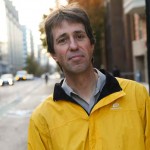
Mike Goodno
Bicycle Program Specialist, District Department of Transportation
Mike Goodno is a bicycle program specialist at the District Department of Transportation. He has a masters of community planning degree from the University of Maryland. During his 11 years at DDOT he has had the pleasure of installing over 1,000 bicycle parking racks; managing the city’s bicycle count program; reviewing roadway reconstruction plans; analyzing bicycle crash data; producing the city’s bicycle map; staffing the city’s bicycle advisory council; and has managed the planning, design, and implementation of over 45 miles of bicycle lanes, 5 miles of protected bike lanes, and 45 miles of signed bicycle routes.

Ryan Gravel
Senior Associate, Perkins + Will
Ryan Gravel is an urban designer at Perkins+Will where he engages site planning, concept development, and public policy. His master’s thesis in 1999 was the original vision for the Atlanta Beltline, a 22-mile transit greenway that transforms a loop of old railroads with transit, parks, and trails to generate economic growth and protect quality-of-life in 45 neighborhoods throughout the central city. Six years of his subsequent work as a volunteer and later in the nonprofit and government sectors was critical to the project’s success, which is now a $3 billion public-private initiative in the early stages of implementation. Even today, the project’s health and economic benefits have already become obvious, with record-breaking use of its first 2-mile phase of trail and over $1 billion of new, compact, mixed-use redevelopment along the same corridor since 2005. At Perkins+Will, Ryan has helped lead early design work on the Atlanta Beltline itself, taking his long-term commitment to sustainable city building full circle: from vision, to advocacy, to planning, design, and implementation. He speaks internationally and has received numerous awards for his work on the project. Ryan is also finishing a book that investigates the cultural side of infrastructure, describing how its intimate relationship with our way of life can illuminate a brighter path forward for cities.
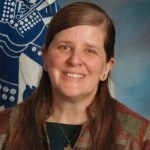
Kristine Kingery
Director, Army Sustainability Policy, U.S. Army
Ms. Kristine Kingery serves as the Director, Army Sustainability Policy, Office of the Deputy Assistant Secretary of the Army for Energy and Sustainability, with overall responsibility for Army-wide sustainability initiatives. She provides program oversight, strategic planning, policy recommendations, and establishes goals, objectives, and metrics for sustainability initiatives. She is responsible for the vertical and horizontal coordination of programs from installations to Headquarters, Department of the Army with full authority for management decisions related to program initiatives. She develops programs spanning several years, involving sensitive issues, and subject to Congressional and/or media scrutiny. She serves as subject matter expert on the Army’s Net Zero Installations Initiative to develop the strategy, identify installations, and monitor progress towards achieving Net Zero Energy, Net Zero Water, and Net Zero Waste.
Ms. Kingery has over 29 years of combined military and federal civil servant experience specializing in managing environmental cleanup from the installations level to overseeing military environmental cleanup efforts in support of national strategy.
Ms. Kingery completed her undergraduate studies at Texas A&M University with a Bachelor of Science Degree in Chemistry. She was commissioned a Second Lieutenant in the Chemical Corps in May 1981 and served on active duty in the Seventh Infantry Division, Fort Ord, CA, and at the U.S. Army Chemical Center and School, Ft. McClellan, AL. She received a Master of Applied Science in Environmental Engineering from the University of Delaware, and Master of Science Degree in National Resource Strategy from the National Defense University.

Kim Lucas
Capital Bikeshare Program Manager, District Department of Transportation
Kim Lucas is a Bicycle Program Specialist for the District’s Department of Transportation where she manages the Capital Bikeshare and Bike Parking programs for Washington, D.C. In the over ten years since Kim began her work in transportation as a student bus driver at the University of Virginia, she has held positions in the public and private sectors, and as a researcher working on a variety of modes. Kim recently returned to the D.C. metro area after completing her Master’s in City Planning at the University of California, Berkeley.

Rachel MacCleery
Vice President for Content, Urban Land Institute
Rachel MacCleery leads ULI’s Building Healthy Places and Infrastructure Initiatives. Under Building Healthy Places, Rachel spearheads ULI’s efforts to leverage the power of its global networks to shape projects and places in ways that improve the health of people and communities, and works to advance action connecting the built environment and health. Rachel’s infrastructure work examines cutting-edge infrastructure trends and issues, engagement in federal, state, and local discussions about infrastructure, and related topics.
Rachel is a frequent writer and speaker on real estate, health, and infrastructure. She previously worked for consulting firm AECOM on projects in China, and served as transportation planner for the city of Washington, DC. She holds a masters in public affairs and urban and regional planning.
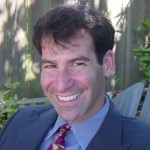
Matt Raimi
Principal, Raimi + Associates
Matt Raimi, the founder of Raimi + Associates, has nearly 20 years of experience in planning. He has directed numerous comprehensive plans, open space plans, and site planning projects. Recent and ongoing projects include the Fremont City Center Precise Plan, the Health Framework Chapter of the General Plan for the City of Los Angeles, General Plans for Hermosa Beach and East Palo Alto, and a Health Element for Santa Clara County’s General Plan. He has also assisted with development of the LEED for Neighborhood Development Rating System and Reference Guide as a sub-consultant to the U.S. Green Building Council, has overseen the LEED-ND certifications of multiple projects, and is LEED-ND Faculty with USGBC. He focuses on creating more livable and sustainable cities, and has spoken extensively on applying the principles of new urbanism to comprehensive plans, incorporating public health concerns into the planning process, and promoting sustainable development at the local level. Mr. Raimi is the co-author of a seminal book on smart growth and the impact of sprawl titled Once There Were Greenfields: How Urban Sprawl is Undermining America’s Environment, Economy and Social Fabric.

Tammy Shoham
Vice President, Capitol Riverfront BID
Tammy Shoham is the Vice President of Economic Development with the Capitol Riverfront Business Improvement District (BID). Prior to joining the BID, Tammy served as a Vice President with RCLCO and a Senior Associate with ERA|AECOM. She is driven to create mixed-use neighborhoods that are as interesting as they are functional. At the BID, Tammy leads a variety of initiatives that improve the competitiveness of the Capitol Riverfront, including transportation advocacy, market research, and public realm improvement. Tammy received her Masters in City Planning from Massachusetts Institute of Technology and a Bachelor of Business Administration from The University of Texas at Austin. She is an active member of the Urban Land Institute.

Megan Kanagy
Capital Projects Manager, DowntownDC Business Improvement District
Megan Kanagy, AICP joined the DowntownDC Business Improvement District in Washington, DC as the Capital Projects Manager in 2011. She oversees improvements to the area’s parks, public realm, and bicycle infrastructure. Prior to joining the DowntownDC BID she worked for DDOT’s bicycle program during the launch of Capital Bikeshare and oversaw the installation of the 15th Street cycle track. She graduated with a dual master’s degree in Transportation Engineering and City Planning from UC Berkeley and a B.S. in Civil Engineering from Rice University. Megan also currently serves as a representative on the DC Bicycle Advisory Committee.

Collin Tateishi
Assistant Project Manager & Planner, LTSC Community Development Corporation
Collin Tateishi joined LTSC’s Community Economic Development team in 2012 as an Assistant Project Manager and Planner. Working across the Real Estate Development and Community Planning & Organizing programs, he has worked on a LEED certified affordable housing development project as well as various city planning initiatives impacting Little Tokyo. As he transitions into a new position as Sustainability Associate, he will focus on energy efficiency opportunities and district sustainability programs.
Collin graduated from the California Polytechnic State University at San Luis Obispo with a degree in City and Regional Planning. He is pursuing a Master of Urban and Regional Planning degree and Certificate in Global Sustainability from the University of California at Los Angeles. His personal hobbies include record collecting, reading, and watching baseball.

Matt Tomasulo
Chief Instigator, Walk [Your City]
Matt Tomasulo is the Founder and Chief Instigator behind Walk [Your City], a civic technology platform enabling communities to create smart, quick, light, and inexpensive pedestrian wayfinding campaigns. In 2012, Matt installed WalkRaleigh, the catalytic guerrilla wayfinding signs that spread across the globe, and ultimately evolved into Walk [Your City]. Matt holds a dual masters degree from UNC-Chapel Hill and NC State in City & Regional Planning and Landscape Architecture. Matt has won multiple awards and competitions, including the Robert Stipe Fellowship, three Student ASLA awards, and the 2010 Urban Land Institute – Hines Urban Design Competition. While in grad school, Matt successfully Kickstarted two projects, raising $50k from 1500 backers that helped him found CityFabric, Inc. Matt’s work has been featured by BBC News, TED.com, The Atlantic, Bloomberg, NPR, and Wired. His work was also included in the 13th Venice Biennale, and he is part of NextCity.org’s “Vanguard”, a “40 Under 40” class of new urban leaders.

John Zeanah
Administrator, Memphis and Shelby County Office of Sustainability
John Zeanah, AICP, is the Administrator for the Memphis and Shelby County Office of Sustainability and is charged with the implementation of the Sustainable Shelby Plan, a strategic framework for action on sustainability initiatives in Memphis and Shelby County. Mr Zeanah’s office coordinates various regional initiatives and serves as an advocate on sustainable practices such as energy efficiency, renewable energy, waste reduction and recycling, sustainable economic development, sustainable food systems, and green building practices.
Prior to this role, Mr. Zeanah served as the Program Manager of the Mid-South Regional Greenprint and Sustainability Plan for the Office of Sustainability, managing a $2.6 million HUD Sustainable Communities Regional Planning Grant to develop a unified vision for a regional network of green space connecting across the Greater Memphis area. The plan includes a comprehensive set of recommended actions toward regional sustainability through improving green space, transportation, health, environment, neighborhoods, and the regional economy.
Mr. Zeanah has presented on the Mid-South Regional Greenprint at national and state conferences of American Planning Association, American Society of Landscape Architects, and American Public Transportation Association and participated as a pilot community partner for APA’s Comprehensive Planning Standards for Sustaining Places initiative. Mr. Zeanah holds a BA in Political Science from Rhodes College and a Master of City and Regional Planning from the University of Memphis.

Scott Hall
General Manager, DC, Zipcar
Scott Hall is the General Manager for the greater Washington, DC area for Zipcar, the world’s largest car sharing organization. He oversees all sales and operations activities for one of Zipcar’s largest market in North America. Scott works with local businesses, universities and government agencies to provide innovative transportation solutions to help reduce costs and support sustainability initiatives. Most recently, Scott partnered with the District Department of Transportation to provide parking at no cost in any legal curbside space within the District of Columbia for Zipcars in the Washington market and helped revamp the city’s on-street car sharing program. Scott is a frequent lecturer and speaker on transportation and sustainability at local universities and business events. Prior to Zipcar, Scott spent almost 20 years in various senior leadership roles for Target, T-Mobile and CompUSA. He holds a Bachelor’s in Finance from the College of William and Mary.

James McCabe
Senior Director, Standards Facilitation, American National Standards Institute (ANSI)
Jim McCabe serves as senior director, standards facilitation, at the American National Standards Institute, where he manages domestic and international standards coordination activities related to smart and sustainable cities and electric vehicles. Recent projects have included: organizing a workshop and network to examine the role of standardization in achieving the promise of smart and sustainable cities; developing and maintaining a standardization roadmap to facilitate the safe, mass deployment of electric vehicles and charging infrastructure in the United States; and organizing workshops with partners in the U.S., Europe and China to facilitate cooperation on electric vehicle standardization.
Mr. McCabe joined ANSI in 1995. Other standards coordination areas of focus have included identity theft prevention, protection of personal data and privacy, occupational safety and health management, consumer affairs, government relations and public policy, and corporate member services. Projects have included developing reports on: the financial impact of breached protected health information to enable businesses to build a case for enhanced PHI security; preventing the theft and misuse of personal financial information; the need for a national identity verification standard; and how research companies measure identity crime. Mr. McCabe also served as convenor of an international working group on consumer participation in standards-setting.
In August 2013, Mr. McCabe was recognized by SES – the Society of Standards Professionals with its Honorary Life Member award.
Prior to joining ANSI, Mr. McCabe served as director of arbitration for the Municipal Securities Rulemaking Board in Washington, DC. He is a graduate of The Catholic University of America.

Eliot Allen
Principal, Criterion Planners
Eliot Allen is an urban planner who has devoted his career to creating vibrant, prosperous, and resilient places. He founded Criterion Planners of Portland Oregon in 1979 to focus on the nexus of urban planning and sustainability, and has since become a nationally-recognized leader in using information technology and collaborative decision-making to help designers and citizens create outcomes that are measurably more livable and environmentally responsible. Eliot is a specialist in urban sustainability rating tools, having served on the original LEED-ND core committee, and since 2007 serving as a technical advisor to the Sustainable SITES Initiative, EcoDistricts, and USGBC; as well as supervising over two hundred LEED-ND certification reviews worldwide for the Green Building Certification Institute. Eliot is a co-recipient of EPA’s Climate Protection Award for the Chula Vista California Climate Protection Plan; the Congress for the New Urbanism’s Charter Award for the Smart Code; and the APA Sustainable Communities Division Award for the Imagine Austin Comprehensive Plan. He is a former chair of Portland’s Energy Commission, and currently serves on the Urban Planning Task Group of the American Society for Testing & Materials, and the USGBC Board of Directors Nominating Work Group.

Don Edwards
CEO, Justice & Sustainability Associates
Don Edwards is considered one of the most deft mediators and process designers working today in the field of land use and development by international, federal, regional, state and local planning, transportation, parks and economic development agencies, corporations, universities, foundations and community-based organizations. A 25 year resident of DC, Don designed and facilitated many of its most complex development projects, including the Strategic Washington Neighborhood Planning Initiative, the Anacostia Waterfront Transportation studies, DC’s Transit Alternatives Analysis, the National’s Baseball Park, the District of Columbia’s Comprehensive Plan and the assessment of the DC Zoning Code’s technical and legal infrastructure.
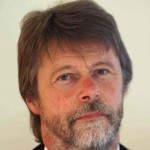
Karl-Josef Jansen
Head of Department 3, Planning and Building Regulations, City of Ostfildern/ Executive Director, German Academy of Urban and Regional Spatial Planning
Karl-Josef Jansen is Head of Department 3, Planning and Building Regulations of the City of Ostfildern and Executive Director of the German Academy of Urban and Regional Spatial Planning, National Committee Baden-Wuerttemberg, a non-profit association to support urban and regional spatial planning on paper and in the field.
As project manager of the development Scharnhauser Park Karl-Josef is a highly desired speaker on the topics “Conversion of Industrial Wasteland” and “Sustainable Planning”. He also acts as advisory committee member for a number of respective research projects like IKONA and “Trading Building Areas among Communities”. In addition Karl-Josef has been a regular member of the Advisory Board of Structuring for Scharnhauser Park since 1998. He has also been a permanent member of the council city planning with the German Association of Cities, National Committee Baden-Wuerttemberg since 1993.
Among others Karl-Josef was delivering well-responded lectures during the 2006 International Conference Seoul, South Korea on “Density of Quality” and the 2009 ParkCity conference of CABE London, UK on “Greener Communities – More Homes, Better Places”. In 2007 Karl-Josef hosted a delegation of the House of Commons and presented a lecture on “Sustainable Settlement Development”.
Since 2005 Karl-Josef has been teaching and examining students in “Town Planning” and “Building Law” at the Nuertingen-Geislingen University of Applied Sciences, Germany.
Some of Karl-Josef’s German publications are “Behinderte Menschen im Blickpunkt der oef-fentlichen Planung“ (2013), “Die Zukunft der Innenstadt” (2011), „Stadt & Energie, große Pläne, kleine Schritte“ (2011).
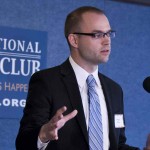
Anthony Kane
Vice President, Research and Development, Institute for Sustainable Infrastructure
Anthony Kane is Vice President for Research & Development at the Institute for Sustainable Infrastructure in Washington, DC where he oversees and directs the research and further development of the Envision rating system for sustainable infrastructure. He is a contributing author of Infrastructure Sustainability and Design. Kane holds a Bachelor of Architecture summa cum laude from Virginia Tech and a Master in Design Studies from the Harvard Graduate School of Design.

Robin Mellon
Chief Operating Officer, Green Building Council of Australia
Robin Mellon has combined his love of the environment, his passion for gardening, his qualifications in real estate and his experience with heritage buildings to become one of Australia’s experts on sustainability in the built environment. Robin joined the Green Building Council of Australia in 2007 to drive the adoption of the Green Star rating system for buildings and communities. He has since spearheaded the GBCA’s advocacy and international work and mentored a number of countries, including Israel and Hong Kong, through the process of establishing their own green building councils. Robin sits on the World Green Building Council’s Policy Task Force, has chaired its Asia Pacific Network, and collaborates with Austrade to showcase Australian green building capabilities around the world. An accomplished presenter, educator and media commentator, Robin is the author of numerous articles on how Australia can capture the benefits of efficient, healthy, liveable, productive and resilient buildings. He is also a regular judge of green building and urban design awards.

Jessica Millman
Director of the Green Neighborhoods Team, NRDC
Jessica Cogan Millman is an expert in urban planning, environmentally sustainable development, and the principles of smart growth. As a founding member of the LEED for Neighborhood Development (LEED-ND) Core Committee, Jessica drafted many of the credits. Jessica is experimenting with applying the LEED-ND rating system in non-traditional ways, including using the rating system as an audit tool to measure how well a community to achieving sustainability goals.
Jessica now directs the Natural Resources Defense Council’s Green Neighborhood Program. The Green Neighborhood program works with communities around the country to design, plan, and catalyze the building of model, neighborhood-scale development projects that combine smart growth, environmental justice, green stormwater infrastructure, efficient transportation options, green building, and public health practices.
Prior to working at NRDC, Jessica served as the Planning Director for the Coalition for Smarter Growth. At the Coalition, Jessica advocated for the adoption of good planning policies around the Washington region. Jessica has held many other positions including: the Deputy Director of the Smart Growth Leadership Institute and Smart Growth America; and Chief of Staff for the Governor’s Office of Smart Growth in Maryland and as the Director of Program and Policy Coordination at the Maryland Department of Planning.

Danielle Pieranunzi
Program Director, Sustainable Sites Initiative, University of Texas at Austin
Danielle Pieranunzi is the Program Director of the Sustainable Sites Initiative™ (SITES™). For the past seven years, she has worked closely with over 50 technical experts from across the country researching and developing comprehensive, science-based guidelines and criteria for sustainable land design and development. She has also been overseeing review of pilot projects from around the world that are seeking to be certified as sustainable sites. She has spoken nationally and internationally on the SITES program and high performance landscapes since 2008. With a diverse background in both the public and private sector, Danielle is drawn to projects that translate urgent environmental and social issues into compelling stories and accessible tools that produce measurable sustainability outcomes and foster positive change. Danielle is based at the Lady Bird Johnson Wildflower Center at The University of Texas at Austin. Danielle is a LEED Accredited Professional, has an M.S. in Sustainable Design from The University of Texas at Austin and a B.S. in Business from Arizona State University.

Scott Pomeroy
Sustainability Manager, DowntownDC Business Improvement District
Scott Pomeroy is the Sustainability Manager for the DowntownDC Business Improvement District (BID). Since 2008, he has managed a wide range of sustainability initiatives including the DowntownDC ecoDistrict, a comprehensive framework of programs formally established on Earth Day 2011. Included in this work, he insured the ecoDistrict’s participation in the DOE Better Buildings Challenge, piloted the DC Smarter Business Challenge, as well as facilitating the production of the annual Building Energy Summits. Prior to joining the DowntownDC BID, Scott was the Executive Director of the 14th & U Main Street Initiative, the then largest urban main street district encompassing a twenty six linear block area. His leadership and coordination of revitalization efforts in that position laid the foundation for the growth and sustainability of the neighborhood and its recognition in 2011 by American Planning Association, as one of their Great Places in America: Streets. Scott Pomeroy’s commitment to the strength and vitality of his city includes serving on numerous boards and volunteering with a variety of community groups, including Keep Washington DC Beautiful, Career Path DC, and the U Street Neighborhood Association.
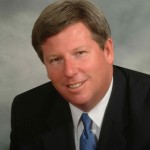
Rob Thornton
President and CEO, International District Energy Association
Rob Thornton is President and CEO of the International District Energy Association (IDEA), a 105-year old industry association founded in 1909 with headquarters near Boston, MA. In this role since 2000, Mr. Thornton represents the interests of 1800 IDEA members from 25 countries.
In his primary role as advocate for the district energy/CHP industry, he has briefed the President of the United States and members of his Cabinet, Senate and House leadership, senior leadership at US DOE, Commerce and EPA, as well as ministries in Abu Dhabi, Dubai, Qatar, Saudi Arabia and countless state and local government agencies. .
During his 28 years in the district energy industry, Mr. Thornton led the startup and growth of new downtown district energy systems in three different cities, with primary P&L responsbility for business development, site selection, permitting and development, franchise and customer agreements.
Mr. Thornton is Publisher of District Energy magazine, organizes 3-5 global conferences annually, and serves on the executive committee of the International Energy Agency (IEA) District Heating and Cooling Committee, working with European and Asian NGO’s to advance global district energy policy and research. He has participated in the IEA CHP Collaborative since inception and is a Founding Member of the Microgrid Resources Coalition.
Recognized with the Norm Taylor Award by IDEA and a CHP Champion by USCHPA, he is a frequent speaker and contributor via conferences, white papers and commentary to the New York Times, Wall Street Journal, National Geographic, Boston Globe and other outlets.

Sarah Heinicke
Executive Director, Lloyd EcoDistrict
Sarah Heinicke is the Founding Executive Director of the Lloyd EcoDistrict, a role she has had
since 2011. While at the Lloyd EcoDistrict she has established its 501c6 nonprofit status,
conducted a baseline of performance conditions from which to measure future successes, conducted a
planning process for identifying actionable projects to pursue, in the areas of transportation,
waste, energy efficiency and water, established a brand and identify for the district, developed a
series of energy efficiencies programs and a very innovative waste reduction material
exchange.
Sarah is the Principal of Verditas, a sustainability consulting firm specializing in
sustainability action planning, project management for urban planning, development and
infrastructure projects. She holds a Masters in Urban and Regional Planning from Portland State
University and an undergraduate degree from University of Chicago.

Todd Baylson
Business Development Lead, Textizen
Todd leads business development efforts in support of Textizen’s growth. He is a frequent liaison with government agencies, consulting firms, and not-for-profit clients. Todd graduated from the University of Vermont and received a Master’s Degree in Urban Planning from the University of Pennsylvania. He previously worked for an elected official in Philadelphia City Council, for the nationally-renowned Pennsylvania Horticultural Society, and in the private sector as an urban planner and urban designer.

Jacob Corvide
Interim Executive Director, EcoWorks
Jacob Corvidae wants to help you realize your vision for a better future. He uses sustainability as a tool for tackling economic development, community building, and improved quality of life. Jacob is the Interim Executive Director at EcoWorks, a 33 year old Detroit-based nonprofit that creates opportunities to learn and practice the sustainable use of energy and resources. We work at the intersection between community development and sustainability, with a strong history of serving low-income populations, but also serving all variety of residents, busiensses and governments in our region. We have an amazing youth program and launched Reclaim Detroit to build the local deconstruction industry, and create jobs.
Jacob is also the President and Co-Founder of the Southeast Michigan Regional Energy Office which provides energy services to local governments. He focuses on finding innovative solutions and has pioneered many new programs of various scales, including co-leading the effort to design, launch and manage the $180 million BetterBuildings for Michigan program. He designed an launched a green behavior-change app called Actioniirs. From affordable housing to the water-energy nexus for governments, from behavior-change to technical know-how, he moves easily through a variety of worlds. Known for his work as a public speaker, facilitator and experienced program designer, Jacob focuses on real, practical solutions that can transform our lives and communities.
Of note for ecodistrict fans: Jacob has also lived off the grid in an ecovillage which reduced his environmental impact to only 10% of the american norm.

John Dalzell
Sr. Architect for Sustainable Development, Boston Redevelopment Authority
At the BRA Mr. Dalzell leads Green Building and Sustainable Development initiatives and policy
including:
Green Building Zoning, enacted in 2007, first major city to require private developers to build
green to LEED standards.
E+ Green Building Program, launched in 2011, proving the feasibility for urban Environmental,
Energy, and Equity Positive (E+) residential development. The program is redeveloping urban infill
sites with new high performance deep green residential homes that generate more energy than they
use; two sites have been completed. In 2012, the Program was expanded to E+ Green Communities with
a focus on two large redevelopment sites and broader goals now including neighborhood
sustainability and community health. Visit http://www.epositiveboston.org
EcoDistricts Program, launched in 2013, to pilot practice in the Seaport / Innovation District
and in the Talbot Norfolk Eco-Innovation District in Codman Square. The program is employing the
EcoDistrict framework to advance district energy and sustainable community strategies and actions.
In 2014, Boston joined the EcoDistrict’s Target Cities Initiative to focus resources in the Talbot
Norfolk Eco-Innovation District.
Mr. Dalzell is a member of the US Green Building Council national Board of Directors where he provides perspectives on urban design, city and community development and is Chair of the Location and Planning Technical Advisory Group. In 2013, Mr. Dalzell was awarded Fellow, the US GBC’s most prestigious recognition for outstanding leadership and practice.

Matthew J. Lister
Associate, Gehl Studio, New York
Matthew is a creative urban place maker, real estate development strategist, and designer. As an associate at Gehl Studio, he focuses on the intersection of real estate strategy and the design and activation of great public spaces. Often working at multiple scales with both private and public clients, he works to develop aspirational, yet economically sustainable and implementable solutions. Matthew also brings an expertise in collaborative engagement with diverse communities in the urban change and development process. Matthew is a Visiting Assistant Professor at Pratt Institute in New York City.
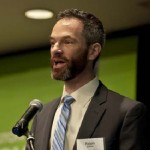
Ralph DiNola
Executive Director, New Buildings Institute
New Buildings Institute Executive Director, Ralph DiNola, has dedicated his professional life to bringing green building innovation to scale. DiNola served as a technical advisor for the Living Building Challenge™ standard and has consulted on over 130 LEED® projects, including ten precedent-setting LEED Platinum certifications. As principal investigator of a landmark study of historic buildings, DiNola helped establish and validate the true value and benefits of building reuse, bridging the divide between sustainability and historic preservation. DiNola is a LEED Fellow, founding Board Chair of the International Living Future Institute, founder and former principal at Green Building Services and 2012 BetterBricks award winner.

Alexis Goggans
At-Large/East of River Planner, District of Columbia Office of Planning
Alexis Goggans is a Community Planner with the District of Columbia Office of Planning and project manager for the St. Elizabeths-Congress Heights EcoDistrict. She received a B.A. from the University of Colorado at Boulder and a M.S. in Sustainability from the University of Texas at Arlington.
Born and raised near Colorado Springs, Colorado, Ms. Goggans discovered her passion for sustainability while working as Diversity Outreach Coordinator for the Environmental Center at the University of Colorado at Boulder. While serving as Diversity Outreach Coordinator, Alexis spearheaded the campus’ first ever environmental justice roundtable, chaired the Environmental Justice Steering Committee and coordinated campus events such as the National Climate Change Teach-In. Upon graduation, Alexis interned with the Aspen Center for Environmental Studies as a naturalist, tour guide and caretaker at the Hallam Lake Nature Preserve.
Ms. Goggans spent the next five years working as an account executive and partner business manager for Hewlett-Packard, where she specialized in critical facility, business development and asset management services. During this time, Alexis founded the Arkansas Diversity & Inclusion Employee Resource Group and organized several corporate social responsibility events. She later moved to Washington, D.C., where she managed the National River Cleanup Campaign for American Rivers, worked as Civic Engagement Manager for Justice & Sustainability Associates and founded Anacostia Trash Talk, a community group dedicated to reducing litter and illegal dumping through education and community cleanups. She currently lives in Washington, D.C., with her sister, niece and dog.

Don Grant
Executive Director, Ottawa Centre EcoDistrict
Mr. Don Grant is Executive Director of the Ottawa Centre EcoDistrict which is the first official
EcoDistrict in Canada. Don has worked for two years with a dedicated group of volunteers to secure
core funding from the public and private sectors and has brought over 50 businesses and
organizations on board as EcoDistrict supporters. Don has over 20 years of experience in
consulting on sustainability and the environment, working predominantly in the areas of
sustainable community planning, sustainable development, energy, water, waste and green
procurement.
Don has extensive experience in the area of sustainable community planning including work on plans
for the City of Winnipeg, City of Iqaluit, the Town of Halton Hills, the City of Kingston and the
Town of Ajax amongst others. Don has a Master’s Degree from Royal Roads University in
Interdisciplinary Studies and a BA from Carleton University. Don lives in Ottawa with his wife,
two kids and a dog named Rufus.

Brad Bradford
Community Energy Planner, IDEA
Brad Bradford is an urbanist with a belief and understanding that investment in cities will be the solution to some of 21st century’s most pressing problems including changing economic geographies, class mobility and education, energy security and climate change, and affordable housing. Trained as an urban planner, Brad has extensive research experience developing district energy implementation strategies, economic development and downtown revitalization policies, and municipal government metrics and evaluators.
As the Community Energy Planner at the International District Energy Association, Brad’s project portfolio includes working with provincial, state, and local governments to advocate for the equitable treatment of thermal energy in policy and funding programs. Supporting activities include written advocacy pieces, presentations to government officials, curation of best practice materials, the development of policy frameworks and toolkits, capacity building with community members and municipalities, and the delivery of community energy planning workshops. In 2013, Brad co-authored ‘Community Energy: Planning, Development & Delivery – Strategies for Thermal Networks’.
Sponsors
“The EcoDistricts Summit was the most rewarding conference we have ever attended both from a professional development perspective but also a business development perspective. We met new clients, and new potential partners, and booked almost $170,000 in new work. We will be back.” -Dave Ramslie, Integral Group
When you sponsor the EcoDistricts Summit, you provide vital support for our organization efforts, but more importantly, you help facilitate the greater, global district sustainability movement. And, not to mention, your Summit sponsorship provides you with a once-a-year opportunity to meet innovative urban sustainability leaders who are working to develop projects in their own neighborhoods.
Sponsorship Benefits Include:
- Global reach: Each year, leaders from 77 cities and 14 countries attended the Summit
- Industry recognition as a leader in the ecodistricts marketplace
- Diverse audience: zthe Summit attracts industry leaders from city agencies, design firms, development companies, utility companies, community development and technology providers
- Recognition in EcoDistricts publications, marketing collateral and media outlets
- Recognition at the EcoDistricts Summit, reduced sponsorship fees and complimentary Summit registrations
Host



VIP Reception

Sustainable City

Innovative City
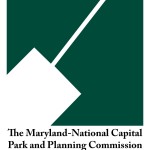


Smart City









Research Forum


Studios and UrbanLab




Founding Members





















Exhibitor




Committees
Thank you to our Host and Program Committee members for helping to make the 2014 EcoDistricts Summit a success.

Arlova Vonhm
Principal Planner, Arlington County, Virginia
Arlova J. Vonhm, AICP is a Principal Planner for Arlington County, VA, responsible for coordinating the public review of large development projects. Prior to joining Arlington County in July 2012, Arlova worked as the Zoning Update Manager for the District of Columbia Office of Planning, leading the effort to rewrite and reorganize the city’s 50-year old zoning ordinance. Mrs. Vonhm is an alumna of the University of Michigan Urban and Regional Planning Program, and has been a board member of the National Capital Area Chapter of the American Planning Association since 2008. In her current position as the Chapter’s Professional Development Officer, she helps create and promote continuing education opportunities for planners in the DC metropolitan region, including organizing local conferences and AICP training activities. Arlova is a Chicago native and currently resides in Northeast Washington, DC with her husband, Mainlehwon, and their son, Jackson.
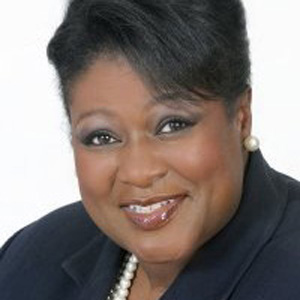
Laureen Boles
Environmental Planner, City of Philadelphia
Laureen is a civil engineer and environmental planner at the City of Philadelphia. She works across all levels of government, with business and industry, neighborhood organizations and residents to develop strategies that result in healthy communities for all. During her tenure at the City of Philadelphia, she directed the city’s Storm Water Management Program, including the creation of new ordinances and policies.
Ms. Boles participates in the development and implementation of the Pennsylvania Climate Change Action Plan, as chair of the Land Use and Transportation committee. As a member of the National Environmental Justice Leadership Forum on Climate Change and the Greater Philadelphia Green Economy Task Force, she was invited to present Philadelphia’s green economy success stories at the Executive Offices of the White House.
Laureen’s academic experience includes teaching positions at the University of Pennsylvania, Drexel University, and Cheyney University. With the Philadelphia City Planning Commission as a client, her students developed neighborhood plans for several communities in Philadelphia. Laureen has also consulted with the American Institute of Architects on neighborhood plans for New Orleans, Louisiana and Augusta, Georgia.
Ms. Boles is also founder and president of E4Progress, an environmental planning and engineering firm, which analyzes environmental, economic, equity, and energy needs for its clients. Laureen earned her Bachelor’s degree in Civil Engineering from Howard University and her Master’s degree in City Planning from the University of Pennsylvania.
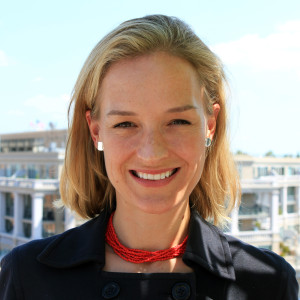
Diane Sullivan
Senior Urban Planner, National Capital Planning Commission
Diane Sullivan, Senior Urban Planner at the National Capital Planning Commission, has 17 years of experience in long-range planning, design and sustainability. Her role as lead sustainability planner focuses on implementing the goals of Executive Order 13514: Federal Leadership in Environmental, Energy and Economic Performance throughout the agency’s initiatives for the National Capital Region, including the SW Ecodistrict. Ms. Sullivan previously worked on waterfront redevelopment projects with the Anacostia Waterfront Corporation in the District of Columbia and with the Portland, Oregon Office of Planning. She began her career at the San Francisco Planning Department. Ms. Sullivan holds a Master’s in Urban and Regional Planning from Portland State University and a Bachelor’s from the University of California, Los Angeles.
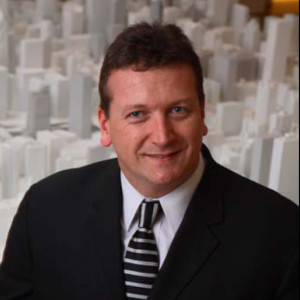
Roger E. Frechette III, PE, LEED-AP
Managing Principal, Interface Engineering
Mr. Frechette is a Managing Principal at Interface Engineering, in their Washington, DC office. He is a licensed professional engineer and a LEED® Accredited Professional with more than 25 years of experience in the field of high-performance engineering, sustainable building design and energy master planning. His international and domestic work encompasses conceptualization, planning and building systems design for both new and existing buildings, ranging from government facilities and museums to laboratories, airports, hospitals, academic buildings, and offices.
He led the engineering teams for Burj Khalifa, which opened in 2010 as the world’s tallest building, the Greenland Tower in Wuhan, soon to be China’s tallest building and the Pearl River Tower, a super-tall office building in Guangzhou, China, considered by many to be the most energy efficient high-rise in the world.
Mr. Frechette is a Senior Fellow with the Design Futures Council, a global network of design community professionals, and a frequent lecturer and author on high-performance design and green engineering. He is a member of the USGBC, the Council on Tall Buildings and Urban Habitat and numerous other professional organizations. In 2004, the United States Congress recognized Mr. Frechette for his work in the field of sustainable engineering.

Jason Hercules
LEED Manager, U.S. Green Building Council
Jason Hercules has studied, taught and worked to implement sustainable development practices in the US and internationally for more than 10 years. During his time with the U.S. Green Building Council, he has helped to manage resource development for the LEED for Neighborhood Development rating system, along with many other USGBC rating systems. Jason relies on his expertise in Smart Growth, transit-oriented, mixed-use development, and green building to provide technical development of the rating system; project review and certification; and education on many of the sustainable development element espoused by LEED for Neighborhood Development.

Jennivine Kwan
VP of International Operations, U.S. Green Building Council
Jennivine Kwan is Vice President of International Operations at the US Green Building Council (USGBC). As part of her responsibilities, she oversees the creation of products and services that better serve sustainability leaders around the world. She also actively works with organizations in over 40 countries, helping them drive green building development. She is the Chair of the World Green Building Council’s (WGBC) Council Development Committee, and member of the WGBC Steering Committee of the Americas Regional Network.
Previous to joining USGBC, Jennivine was responsible for assisting Johnson Controls, a Fortune 100 company, to develop its green building and energy solutions business in Latin America, focusing primarily on Chile and Argentina. A Canadian national, she has spent over a decade living and working in Asia and Latin America. She is a LEED AP BD&C and has a Master’s degree in Sustainable Design and Construction from the Universidad del Desarrollo, a leading private university in Santiago, Chile. She speaks fluent Mandarin, Cantonese, Spanish and French, and conversational Portuguese. To connect, please find her on Twitter @JennivineKwan.
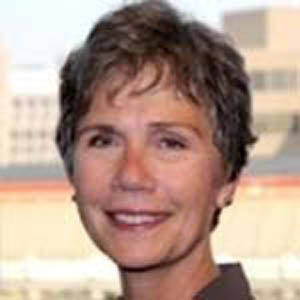
Ellen Jones
Director of Infrastructure and Sustainability, DowntownDC Business Improvement District
Ellen Jones is the DowntownDC Business Improvement District’s (BID’s) Director of Infrastructure and Sustainability. The DowntownDC BID incorporates 133 blocks from the White House to Union Station. Her Department’s portfolio includes parks, transportation and the DowntownDC ecoDistrict.
Ellen was Executive Director of the Washington Area Bicyclist Association (WABA) prior to joining the DowntownDC BID. Her career has also included work in the private and public sectors in the fields of transportation and environmental protection. Ellen has a Master’s of Public Affairs degree from the Lyndon B. Johnson School, University of Texas.
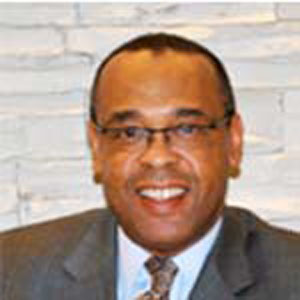
Steven Jumper
Director of Corporate Public Policy, Washington Gas Light Holdings, Inc.
Steven Jumper is currently the Director of Corporate Public Policy for Washington Gas Light Holdings, Inc. In this capacity, he is responsible for leading the company’s government relations, community investment, issues management and corporate philanthropy programs.
Since joining Washington Gas in 1997, Steven has led several major public policy and external relations initiatives throughout the organization’s multi-state operation.
Prior to joining Washington Gas, Steven served in cabinet-level state government positions, including deputy chief of staff to former DC Mayor Sharon Pratt. Steven has also held senior positions in the utility regulatory sector.
Steven holds a Bachelor’s degree from St. Augustine’s College and a Master’s degree from George Washington University. He is also a graduate of Johns Hopkins University’s Leadership Development Institute. He resides in Washington, DC with his wife. They have two adult children.
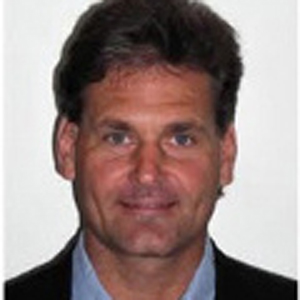
Dale Medearis
Senior Environmental Planner, Northern Virginia Regional Commission
Dale Medearis is a senior environmental planner for the Northern Virginia Regional Commission. He co-leads the NVRC’s regional climate and energy programs and manages NVRC’s international environmental partnerships. Prior to working for NVRC, Dr. Medearis spent approximately 20 years at the Office of International Affairs, U.S. Environmental Protection Agency, Washington, as the Program Manager for Western Europe and urban environmental programs. Dr. Medearis also managed the U.S. National Park Service’s Potomac American Heritage River Initiative. He has been the Vice-Chair of the OECD Territorial Development Committee and Chairman of the OECD Working Group on Urban Affairs. Dr. Medearis has been awarded fellowships to study urban and environmental planning in Europe from the Humboldt Foundation, Fulbright Commission, European Union, and American Council on Germany. He teaches graduate courses in environmental planning at the Johns Hopkins University. He has a PhD from Virginia Tech University, an MS from George Mason University, an MGA from the University of Pennsylvania, and a BA from the University of Redlands.
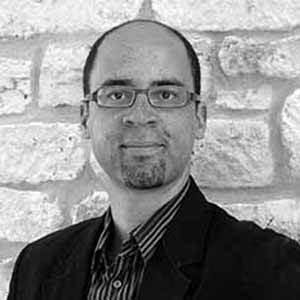
Bungane Mehlomakulu
Principal, Integral Group
With more than 10 years of engineering consulting experience, Bungane focuses on integrated project delivery, building information modeling, project development and multidisciplinary team leadership. He works with architects and owners to identify opportunities outside the traditional scope of MEP services, emphasizing passive strategies such as natural ventilation, day lighting, plug load reductions and solar control to drive down loads and minimize the impact of active systems. He develops sustainable building systems across multiple building sectors, including higher education, K – 12, commercial, educational, institutional and science and technology. Bungane received the 40 under 40 Award in 2011 from Consulting-Specifying Engineers for his commitment to excellence. He shares his knowledge and passion for sustainable design through speaking engagements with industry and community organizations and as a guest lecturer at the Universities of Texas at Austin and San Antonio.
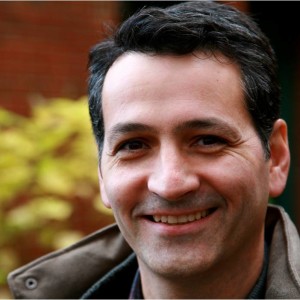
Tom Osdoba
VP of Enterprise Green Initiative, Enterprise Community Partners, Inc.
Tom is vice president of Enterprise Green Initiatives and has 22 years of experience building and managing green organizations and communities, including in the clean energy industry. Through its Green Initiatives, Enterprise catalyzes the public, private and nonprofit sectors in its effort to make all affordable housing nationwide green by 2020. Enterprise Green Communities Criteria is the first green building standard for affordable housing in the nation, and tools such as the new Project Management Guide assist the industry with implementing the criteria.
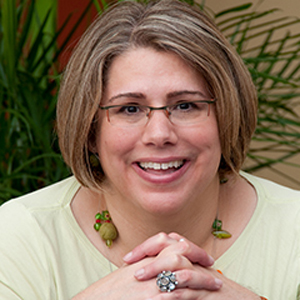
Patty Rose
Executive Director, Greenspace, NCR
Patty is an experienced leader in the field of design for public service. As Executive Director of Greenspace, she creates partnerships that integrate efforts of the development and advocacy communities to create more vibrant and sustainable real estate, economic and community development. Her leadership contributed to creating the 2006 DC Green Building Act and she is now focused on its successful implementation through Greenspace’s programs and as a mayoral appointee to the DC Green Building Advisory Council.
Her previous work as the Assistant Director for Santa Monica’s experimental College of Design, Art and Architecture, Special Assistant to the Executive Director for St. Louis’ Regional Transportation and Development agency and co-founder of Mindsai Productions, a multimedia edutainment production company gives her the skills to create programs that catalyze transformational changes. She holds a degree in Architecture from the University of California at Berkeley.
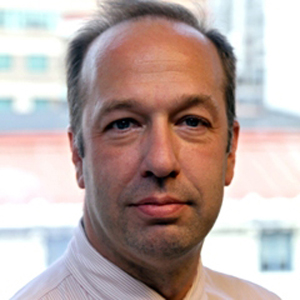
Scott Pomeroy
Sustainability Manager, DowntownDC Business Improvement District
Scott Pomeroy is the Sustainability Manager for the DowntownDC Business Improvement District (BID). Since 2008, he has managed a wide range of sustainability initiatives including the DowntownDC ecoDistrict, a comprehensive framework of programs formally established on Earth Day 2011. Included in this work, he insured the ecoDistrict’s participation in the DOE Better Buildings Challenge, piloted the DC Smarter Business Challenge, as well as facilitating the production of the annual Building Energy Summits. Prior to joining the DowntownDC BID, Scott was the Executive Director of the 14th & U Main Street Initiative, the then largest urban main street district encompassing a twenty six linear block area. His leadership and coordination of revitalization efforts in that position laid the foundation for the growth and sustainability of the neighborhood and its recognition in 2011 by American Planning Association, as one of their Great Places in America: Streets. Scott Pomeroy’s commitment to the strength and vitality of his city includes serving on numerous boards and volunteering with a variety of community groups, including Keep Washington DC Beautiful, Career Path DC, and the U Street Neighborhood Association.
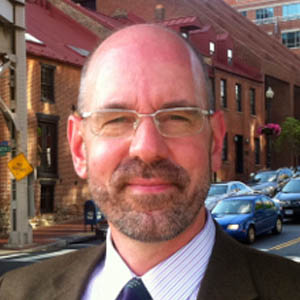
Uwe Brandes
Executive Director, Masters in Urban and Regional Planning, Georgetown University
Uwe S. Brandes has over 20 years of experience in the planning, finance, design and construction of buildings, parks and infrastructure across the urban landscape. He is the Founding Executive Director of the Masters Program in Urban and Regional Planning at Georgetown University and Principal of Brandes Partners LLP. Prior to his appointment at Georgetown University, Mr. Brandes served as Senior Vice President at the Urban Land Institute (ULI) and Director of Capital Projects and Planning for the Anacostia Waterfront Corporation. Mr. Brandes is a Fulbright Scholar and has degrees in engineering science and architecture. He serves on the board of the Landscape Architecture Foundation and Bioregional North America.
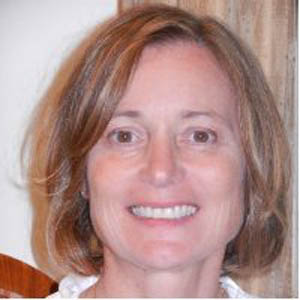
Véronique Merier
Former Head of the Energy Administration, District Department of Energy
Véronique, an engineer, chose a focus on the environment over 25 years ago and relentlessly continues to be at the forefront of issues and solutions, from dealing with hazardous environmental emergencies, to improving manufacturing processes for IBM, to developing energy efficiency as the fuel of first choice, to ensuring training of all partners for the District of Columbia new Energy Assurance Plan, to gathering solar energy stakeholders to talk about issues and solutions on a regular basis thus ensuring the desired growth of solar in DC.
She built a successful green products portfolio for Washington Gas Energy Services (WGES), a Mid-Atlantic energy supplier. Via the development of a carbon offset product, she spearheaded the creation of an innovative long-term linked-to-sale Carbon Reduction Fund benefiting the Chesapeake Bay Foundation. She also partnered with local governments in the promotion of wind power purchasing. More recently, leading DC’s Energy Administration, she had oversight of a set of energy programs spanning from energy efficiency, renewable energy, energy assurance and direct energy assistance. She led the development of DC’s Comprehensive Energy Plan (CEP). Based for 5 years in India, as part of a larger climate change initiative, she supported a Municipal Street Lighting Energy Efficiency demonstration project which today is being replicated in several cities. Better street lighting provides stability to the important evening economic activity, increases street safety and in some cases even provides a bright spot for kids to study at night.
Veronique, lives in Montgomery County, Md with her family and speaks French fluently.
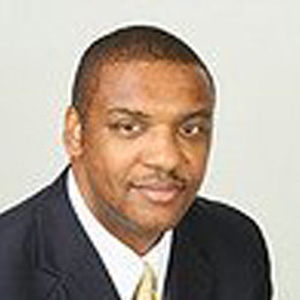
Howard Ways, III
Executive Director, Prince George’s County Redevelopment Authority
Howard Ways, III, AICP, was named the Executive Director of the Redevelopment Authority of Prince George’s County in July 2012 where he leads a staff of 15 charged with being the chief redevelopment entity for the county, with an emphasis on mixed use development within inner beltway communities. The agency also manages the County’s home buyer assistance program, neighborhood stabilization program and community impact grant program for local non-profit corporations. Currently the agency is managing projects valued over $300 million.
Prior to joining the Redevelopment Authority, Mr. Ways served as the Director of Planning and Sustainability for the University of the District of Columbia where he managed the university’s sustainability initiative by enhancing academic offerings, greening the physical campus and promoting sustainable procedures to reduce energy consumption, reduce waste, improve recycling and advance the use of renewable energy.
Previously, Mr. Ways worked for more than a decade on various economic development, green building and sustainability initiatives while at the Office of Planning for the District of Columbia and the Anacostia Waterfront Corporation. He also served as a Special Assistant to the District’s Deputy Mayor for Planning and Economic Development and managed vacant property acquisition and disposition. Additionally, Mr. Ways has served as Director of Planning and Housing Development for the Historic East Baltimore Community Action Coalition (HEBCAC), where he managed real estate development, property acquisition, demolition and disposition for the Baltimore Empowerment Zone, as Community Planner for The Enterprise Foundation and as a Development Assistant for The Cordish Company, working on such iconic projects as the Power Plant Live.
Since 2008, Mr. Ways has served as an Adjunct Professor at the School of Architecture and Planning at the Catholic University of America as well as a Lecturer at Howard University School of Architecture and Engineering. He is a frequent lecturer at universities. He earned a Master’s of City and Regional Planning from Morgan State University and his Bachelor’s in Architecture at Temple University. He also was a HUD fellow at Harvard University’s John F. Kennedy School of Government. Mr. Ways is a member of the American Institute of Certified Planners (AICP) and the American Planning Association (APA) and the Washington, DC representative for the TransAtlantic Cities Network of the German Marshall Fund of the United States.
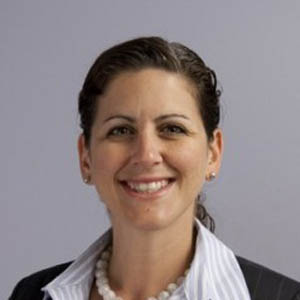
Angela Vincent
Sustainability Project Manager, VHB
Angela is a Sustainability Project Manager for VHB, Inc. based in Watertown, MA. In this role, Angela works with over 60 communities, primarily in New York and Massachusetts, to support and advance their climate protection and sustainability efforts. Angela is working with the Climate Smart Communities program to provide technical assistance such as trainings, resource guides, in-person guidance, and webinars to local governments in the Capital District and Mid-Hudson Region. In Massachusetts she coordinated the public outreach for and development of the Greenfield Sustainable Master Plan in Greenfield, MA. As a volunteer, Angela is the Chair of the Lowell Green Restaurant Certification Program, which she helped to create in 2011 and is a Board Member for the American Planning Association.
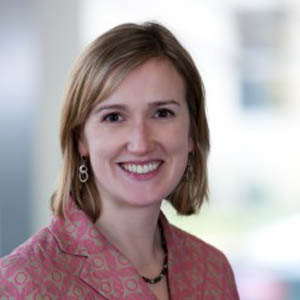
Sophie Lambert
Senior Director of UrbanPlan, Urban Land Institute

Barbra Batshalom
Executive Director, Sustainable Performance Institute
Barbra Batshalom, the founder and executive director of the Sustainable Performance Institute, is a social entrepreneur whose vision drives the organization’s programs to transform the market from public policy to professional practice. Her work focuses on the intersection of systems, processes and culture. With a diverse background of fine arts, social psychology and 20 years in architecture and sustainability consulting, she brings a variety of skills to her work and a unique perspective engaging the human dynamics of decision-making and creative collaboration to technical work. She’s an educator, public speaker and change agent that works with a wide range of governmental, institutional and private sector organizations to help them institutionalize sustainability and achieve measurable improvements in performance and profitability. SPI’s green firm Certification program is the first industry program to provide a framework for evaluating the capability of design and construction firms to deliver a consistent, high quality sustainability service and SPI’s Green Firm Boot Camp workshop program has been delivered to hundreds of firms nation-wide to help raise the bar on professional practice in the industry.

Walker Wells
Director of Green Urbanism, Global Green USA
Mr. Wells is Director of the Green Urbanism Program for Global Green USA, a national non-profit organization headquartered in Santa Monica. He works with affordable housing developers, municipalities, and school districts across the country to further green building and sustainable development practices by providing technical guidance, and developing programs and public policy. Mr. Wells is editor and a co-author of the 2007 book Blueprint for Greening Affordable Housing and the 2006 publication Creating Successful Green Building Programs, a 2012 Pritzker Fellow at the UCLA Institute of the Environment and Sustainability, and 2013 Fulbright Fellow with the Royal Institute of Technology Urban Planning Program in Stockholm. Mr. Wells holds Bachelor’s degrees in Sociology and Environmental Studies from the University of California Santa Barbara and a Master’s of City and Regional from the California Polytechnic University San Luis Obispo. He also studied at Lund University and the Lund PolyTechnic Institute School of Architecture in Sweden. Prior to joining Global Green Mr. Wells was a Senior Urban Design with Gruen Associates in Los Angeles, an Associate Planner with the City of Santa Monica, and an Urban Planner for the City of Malmo, Sweden. Mr. Wells is a certified urban planner, a LEED Accredited Professional, a Green Rater, a member of the State of California Green Building Code Advisory Committee, an invited contributor to the Planetizen web site, a lecturer on Green Urbanism at the Claremont Colleges, and the UCLA Urban Planning Program.
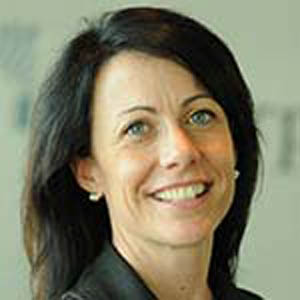
Dana Bourland
VP of Environment, The JPB Foundation
Dana is Vice President of the Environment Program at The JPB Foundation. In this role Dana works at the intersection of issues related to health, poverty and the environment. Dana is leading the creation and development of JPB’s environment program with a goal to enable healthy and resilient communities across the US. Formerly Dana was Vice President of Green Initiatives for Enterprise Community Partners where she led environmental strategy for the national organization. Dana developed and oversaw all aspects of Enterprise’s award-winning Green Communities program including the creation of the Green Communities Criteria and Enterprise’s multifamily retrofit program. Dana co-created and served as managing director of the Green Communities Offset Fund. In 2010, Dana was responsible for leading Enterprise’s effort to catalyze the public, private and nonprofit sectors to make all affordable housing green by 2020.
A Returned Peace Corps Volunteer, Dana is a graduate of Harvard University’s Graduate Program in Real Estate and holds a Master of Planning Degree from the Hubert H. Humphrey Institute of Public Affairs, Univ. of Minnesota. She is a certified planner (AICP), and a LEED Accredited Professional. Dana was recently awarded a Residency at the Rockefeller Foundation’s Bellagio Center. Dana was named one of Fast Company Magazine’s Most Influential Women Activists in Technology and a Young Leader by Affordable Housing Finance. Dana is featured in and has contributed to numerous publications including the book “Becoming an Urban Planner: A Guide to Careers in Planning and Urban Design;” and “Greening Our Built World: Costs, Benefits, and Strategies” and is included as faculty in Fast Company’s 30-second MBA program providing a response to the question “How do you think about sustainability?”. As a national leader in green development, Dana has served on numerous task forces, co-chaired industry wide conferences and addressed national and international audiences on topics related to green community development and affordable housing.
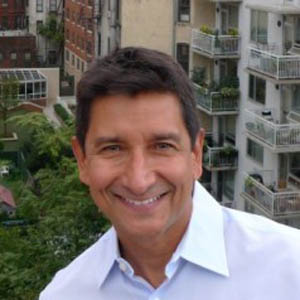
Daniel Hernandez
Project Director, Jonathan Rose Companies
Daniel Hernandez is a real estate developer, planner, and project manager. With over 25 years of experience, Daniel’s portfolio includes a broad range of project types in urban places from San Francisco to New York. He has been in leadership positions throughout his career, and managed all phases of project development, from programming and planning, analysis and financing, through construction and asset management. Daniel has worked in the for-profit, non-profit, and public sectors, and has participated in creating national policy and certification programs addressing sustainable urban development. He is also a professor focusing on social innovation, sustainability, and the redevelopment of urban places.
Daniel is an avid project-oriented person planning and developing complex projects. He enjoys putting the pieces togetherto make things happen, including a wide range of stakeholders, financial instruments, and public and private partners. He is able to maneuver through programmatic requirements and regulatory parameters to achieve project objectives. He is not interested in projects associated with maintaining the status quo. His interest is in creating dynamic solutions in collaboration with others also excited about addressing new concerns, leveraging assets and investments, and taking on new projects in evolving markets.
This depth of experience provides Mr. Hernandez with strong skills to bring complex urban projects to fruition. He blends vision with pragmatism to achieve interconnected project goals and objectives. Daniel is a strategist and project manager bringing a unique perspective to real estate development that creates value and maximizes asset potential.
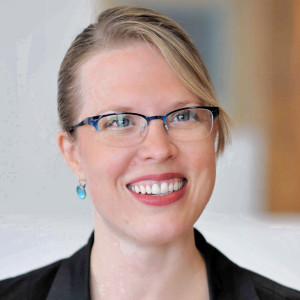
Erin Christensen Ishizaki
Associate Principal, Mithun
Erin Christensen, AIA, LEED® ND AP, is an Associate Principal and co-director of Urban Placemaking at Mithun. Erin is a national leader in integrating public health and design, including pioneering health impact assessments for neighborhood planning projects. An urban designer and architect, Erin’s experience in urban redevelopment and neighborhood planning across the country enables communities, both large and small, to achieve ing vitality and strength. Erin brings innovative thinking to master planning and redevelopment strategies for local governments,neighborhoods, housing authorities, transit agencies, and private developers. She is an expert in ecodistrict planning and integrating a variety of environmental metrics to help guide stakeholders through a proactive decision-making process. Erin is passionate about creating sustainable, high performance development that builds physical and social community and maximizes investment. Erin is LEED ND accredited, and serves on the LEED Location and Planning Technical Advisory Group and as President of CNU Cascadia.
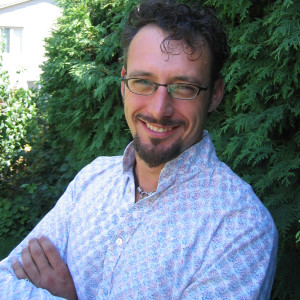
Greg Searle
Executive Director, Bioregional North America
Greg is a sustainable community strategist, facilitator, and occupant engagement specialist. As a serial social entrepreneur, he is the founder of assorted initiatives like HARVEST NOIR (a pop-up picnic and dance), BIOREGIONAL NORTH AMERICA, and TOMOYE CORPORATION (an internet startup acquired by NewsGator).
At BioRegional, Greg focuses on facilitating community engagement around One Planet Action Plans and implementing occupant engagement programs in commercial/residential buildings. Greg is developing a network of ECOCONCIERGES – on-site coaches who make sustainable lifestyles more convenient for tenants in buildings and ecodistricts. Greg is also a specialist in designing for sustainable behaviors and occupant engagement in existing buildings, master-planned communities, and ecodistricts.He is a certified ecoTeams trainer and designs programs for eco-concierges and property teams to increase retention and building efficiency while reducing tenant footprint.
Greg is a founding board member of the Ottawa Centre EcoDistrict, advises the Metcalf Foundation’s Reinventing Growth program (Toronto), and sits on the Program Committee for the 2014 EcoDistrict Summit (Washington DC). He is a past advisor to the US Green Building Council, Clinton Climate Initiative, and Special Advisory Panels of the Urban Land Institute, and is a past Vice President of the Social Planning Council of Ottawa. Previously, Greg worked as an innovation consultant facilitating big ideas into reality for clients like the United Nations (Rome) and World Conservation Union (Brussels).
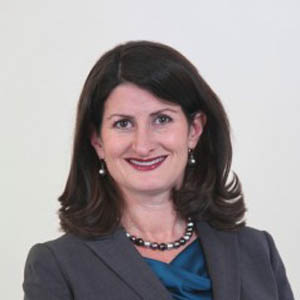
Maria Koetter
Director of SustainabilityLouisville Metro Government
Maria Koetter is the first Director of Sustainability for Louisville Metro and is responsible for city-wide strategic sustainability planning, policy development and implementation of new programs and initiatives. Ms. Koetter wrote Louisville’s first sustainability plan “Sustain Louisville”, which was released in March 2013. Ms. Koetter’s experience in the environmental industry includes working with both government and Fortune 500 private sector clients.
Ms. Koetter formerly founded and was President of Bgreen2 LLC, which provided sustainability consulting services. Koetter has extensive experience with corporate social responsibility and organizational sustainability planning. Koetter was formerly employed at the top 10 national consulting firm Tetra Tech Inc. as a senior project manager. In this capacity, Ms. Koetter managed and supported numerous multi-project portfolios and worked within a wide array of state and federal EPA regulatory programs.

Marissa J. Ramirez
Sustainable Communities Project Manager, Green Neighborhoods, Natural Resources Defense Council
Marissa Ramirez is the Consulting Project Manager for Natural Resources Defense Council in Washington, DC. She is part of the Green Neighborhoods Initiative, which is a project of NRDC’s Urban Solutions Program. She works together with neighbors and local leaders primarily in underserved locations on revitalizing their communities by providing ideas and tools for a more sustainable future.
Marissa has a Masters of Environmental Management from the Yale School of Forestry and Environmental Studies, where she focused her studies on urban environmental economics. She also holds a Bachelor of Science degree in Biology from Yale University. Previously, Marissa was a science researcher and continues to bring both her passion for human and urban health to her professional career.

Shanelle Smith
Local Director, Emerald Cities Cleveland
Shanelle has spent the past few years helping Greater Cleveland’s civic and community leaders adopt economic development practices that will address “the three Es” of sustainability: equity, environment, and economy. In August 2012 she helped to organize a frank conversation between community and labor leaders, anchor institutions and government officials about maximizing public and private investments in Cleveland through community benefits agreements. Shanelle is currently managing innovative partnership between Cuyahoga County Council and others to develop a finance program in support of building energy upgrades in 53 cities and municipalities within the county. She is a member of Mayor Frank Jackson’s Climate Action Advisory Committee. In October 2011 she was named “One to Watch” by the Ohio Environmental Council for her work as a “consensus-builder, bringing environmental, labor, and business leaders together with the African-American community.” Shanelle is a “UAW baby,” committed to forging alliances that lead to good jobs, a cleaner environment, and a more energy-independent and inclusive economy.

Brianne Nadeau
Vice President, Rabinowitz Communication
Brianne Nadeau is the democratic nominee for DC Council in Ward 1. She is a community activist and seasoned professional who is invested in improving the neighborhoods of Ward 1 through her service on the Advisory Neighborhood Commission, her work with non-profits dedicated to the Washington community and through initiatives she has spearheaded to promote sustainability and neighborhood cooperation. As a homeowner and 12-year District resident, Brianne is deeply invested in her community and has developed a vision for Ward 1 focused on strengthening our schools, supporting small businesses, increasing affordable housing and public safety, and putting measures in place that will end pay-to-play politics.
In her role as a community leader, Brianne has brought together residents and business owners on two major initiatives in the U Street area. She helped create the U Street Movie Series, now in its third year, and founded Sustainable U, a community-led initiative that strives to increase the availability of, and participation in sustainable living and working options in the 14th & U corridor. The initiative aims to protect the environment, improve community quality of life and reduce energy costs for consumers. It is designed to serve as a model for other neighborhoods across the District.
She enjoys writing and contributes to GreaterGreaterWashington.org, InterfaithFamily.com and contributed in the past to the neighborhood blog Borderstan.
Brianne grew up in Michigan, in a family with a deep commitment to civic and political activism. Brianne earned an M.A. in Public Policy from American University and a B.A. in Political Science from Boston College.
She is an active member of her prayer community, DC Minyan, and is a board member of Jews United for Justice. By day, she works at the firm Rabinowitz Communications, as a communications advisor to progressive non-profit organizations.

Beth Heider
Chief Sustainability Officer, Skanska USA
As Chief Sustainability Officer, Beth translates Skanska’s commitment to sustainability into action, catalyzing leadership across all four of Skanska’s US business units and inspiring a vision of the future. She supports a company of exceptional talent and admirable values with over $7B in annual revenue to build a more sustainable world and a more profitable business. She serves on Skanska USA’s Management Team. Her 35-year career encompasses all phases of design and construction from master planning through project closeout as architect, construction manager, cost manager and value management facilitator. She has presented papers on cost, value, eco-efficient building, and program management at some 150 international conferences. One of ten women named “pioneer in green building” by the Green Economy Post, Heider served for six years on USGBC’s national Board of Directors which she chaired in 2012. In 2013, she received Skanska’s global achievement award for green market making.

Sarah Robinson
Associate, Urban Green LLC
Sarah Robinson is an Associate for Urban Green LLC, where she supports the developer in the planning and construction of affordable green housing projects. Sarah presently holds a board position on the U.S. Green Building Council National Capital Region and is committed to building healthy and thriving neighborhoods. A Northeast Ohio native, Sarah has a Master’s degree in Engineering Management from The George Washington University and holds a Bachelor of Science degree from Syracuse University in Engineering. Previously as the Community Outreach Associate at the DC Sustainable Energy Utility, she coordinated strategic and tactical outreach efforts within DC’s residential and commercial markets.

Shelley Poticha
Director of Urban Solution, National Resources Defense Council
Shelley Poticha serves as the director of the Urban Solutions program, building NRDC’s work for better cities that support thriving people. Urban Solutions brings the place-based work of NRDC together into a coordinated strategy and includes promoting transportation choices through mobility options, scaling up building energy efficiency, model green and equitable neighborhoods, sustainable food systems, green infrastructure and climate preparedness. Urban Solutions is the culmination of NRDC’s thinking and work for sustainable communities since the organization adopted the area as an institutional priority.
Shelley is a longtime partner of NRDC in multiple initiatives including transportation policy reform, LEED-ND, and the creation of Smart Growth America. Prior to joining NRDC, Shelley was a senior advisor and director of the Office of Sustainable Housing and Communities at the Department of Housing and Urban Development. Before joining HUD, she served as President and CEO of Reconnecting America, where she became a national leader for the reform of land use and transportation planning and policy with the goal of creating more sustainable and equitable development, particularly around transit stations. And prior to that, she served as Executive Director of the Congress for the New Urbanism.
Shelley holds a Master of City Planning from the University of California at Berkeley and a Bachelor of Arts from the University of California, Santa Cruz. She works in NRDC’s Washington office.
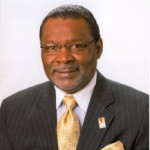
Stanley Jackson
President and CEO, Anacostia Development Corporation
Mr. Stanley Jackson, the President and CEO of the Anacostia Economic Development Corporation is an accomplished development and financial leader with over 30 years of housing and economic development experience.
As Director of DHCD, Mr. Jackson oversaw a $250 million budget, and spearheaded the District’s participation in the development of over 6,700 units of newly constructed and rehabilitated affordable housing for seniors, special needs, and very low-to-moderate income District residents.
During his tenure as Deputy Mayor for Planning and Economic Development, Mr. Jackson oversaw the creation of the Site Acquisition Funding Initiative, a low-cost source of revolving site-acquisition and predevelopment funds for non-profit developers. As Deputy Mayor, Mr. Jackson also directed the District’s participation in the development of $2.5 billion in residential, commercial, and entertainment development in downtown District of Columbia, representing the revitalization of the city’s geographic core.

Zach Dobelbower
EcoDistricts Director, DC Department of General Services, Energy and Sustainability Division
Zach Dobelbower is the EcoDistricts Director for the DC Department of General Services’ Energy & Sustainability Division. He is responsible for identifying and implementing neighborhood-scale solutions that lower energy costs, reduce volatility and risk, decarbonize the city’s energy supply and consumption, and catalyze efforts to address the climate crisis as quickly as possible. Zach plans, designs, and manages projects ranging from energy districts and portfolio management to capital budgeting and policy development. Before joining DGS, Zach owned and managed Carbon Cross Development, a consulting and contracting company focused on building science and clean energy. Prior to that, Zach served as an Urban Sustainability Planner in the DC Office of Planning, managing projects ranging from economic and cultural development to urban design and sustainability. Zach is a LEED accredited professional, BPI Building Analyst, and holds an MPA from American University and a BA from the University of Oklahoma.
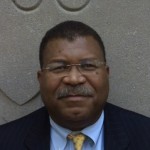
Wayne Curtis
Project Specialist, University of the District of Columbia
Dr. Curtis is currently a project specialist with the College of Agriculture, Urban Sustainability and Environmental Sciences (CAUSES), and is the Director of Center for Urban Entrepreneurship. He is also an Adjunct Professor at the School of Business and Public Administration, both with the University of the District of Columbia.
Dr. Curtis earned a Master of Science in Economic Development from Columbia University Graduate School of Architecture and Planning (focusing on Public Bonds) and a Bachelor of Administration, with honors, from Harvard University, in Visual and Environmental Studies. He holds a PhD in Philosophy, in Leadership and Change from Antioch University. His research focuses on wealth building strategies for working class Americans through social entrepreneurship and employee stock ownership plans.

Rich Hubacker
Principal, ZGF Architects LLP
Rich Hubacker is a Principal in the Washington, DC office of ZGF Architects LLP, and has over 20 years of experience on complex research and medical institutions, public buildings, transit and educational facilities. Rich builds collaborative relationships among design teams and owners to integrate high performance into building and site design. Rich has worked with nationally recognized clients such as the U.S. Army Corps of Engineers, Duke University, the Max Planck Florida Institute, Dickinson College, University of Pittsburgh Medical Center, and the National Institutes of Health, among others. In addition to project responsibilities, Rich demonstrates ZGF’s commitment to high performance by co-founding the Big Green Commute–a DC Green Commuting challenge–and the DC InConference–a focused look on environmental stewardship and project performance education. Rich holds a Bachelor of Architecture from the University of Miami.

Christina Grace
Principal and Food Systems Consultant, New Territories
Christina Mitchell Grace is a food systems consultant with over 20 years of management experience including 14 years dedicated to developing regional farm-to-market infrastructure, community food projects, and food policy. She collaborates with not-for-profits, government agencies and businesses to implement food systems strategies that address climate change, loss of farmers and farmland, hunger, obesity, and unemployment. Her areas of expertise include regional food systems planning, food distribution and processing, sustainable food sourcing, urban agriculture, and organic waste management. As New Territories, she provides strategic planning; project design, development and management; system and vendor evaluation; policy development and market research services.
Christina has participated in regional food systems projects in New York, Oregon and California and national food policy development and advocacy. Prior to working in food and agriculture, Christina was a marketing executive for First Call, Thomson Reuters Company and AMR Research (now Gartner Group).
 Menu
Menu

